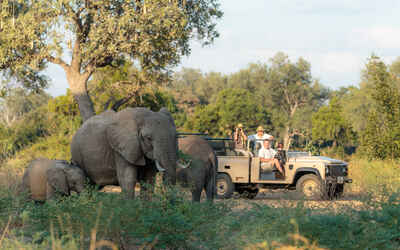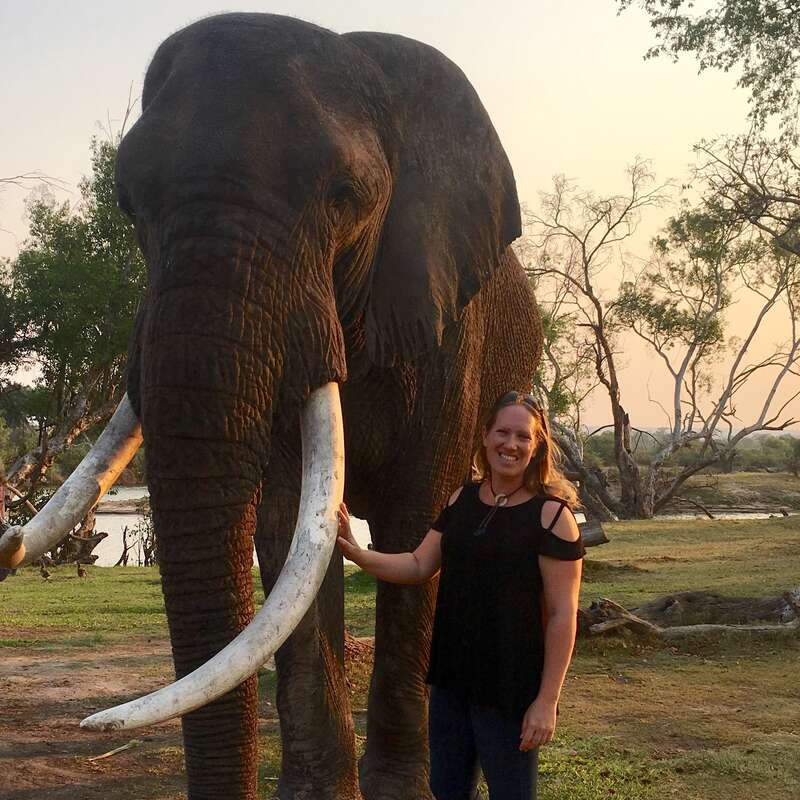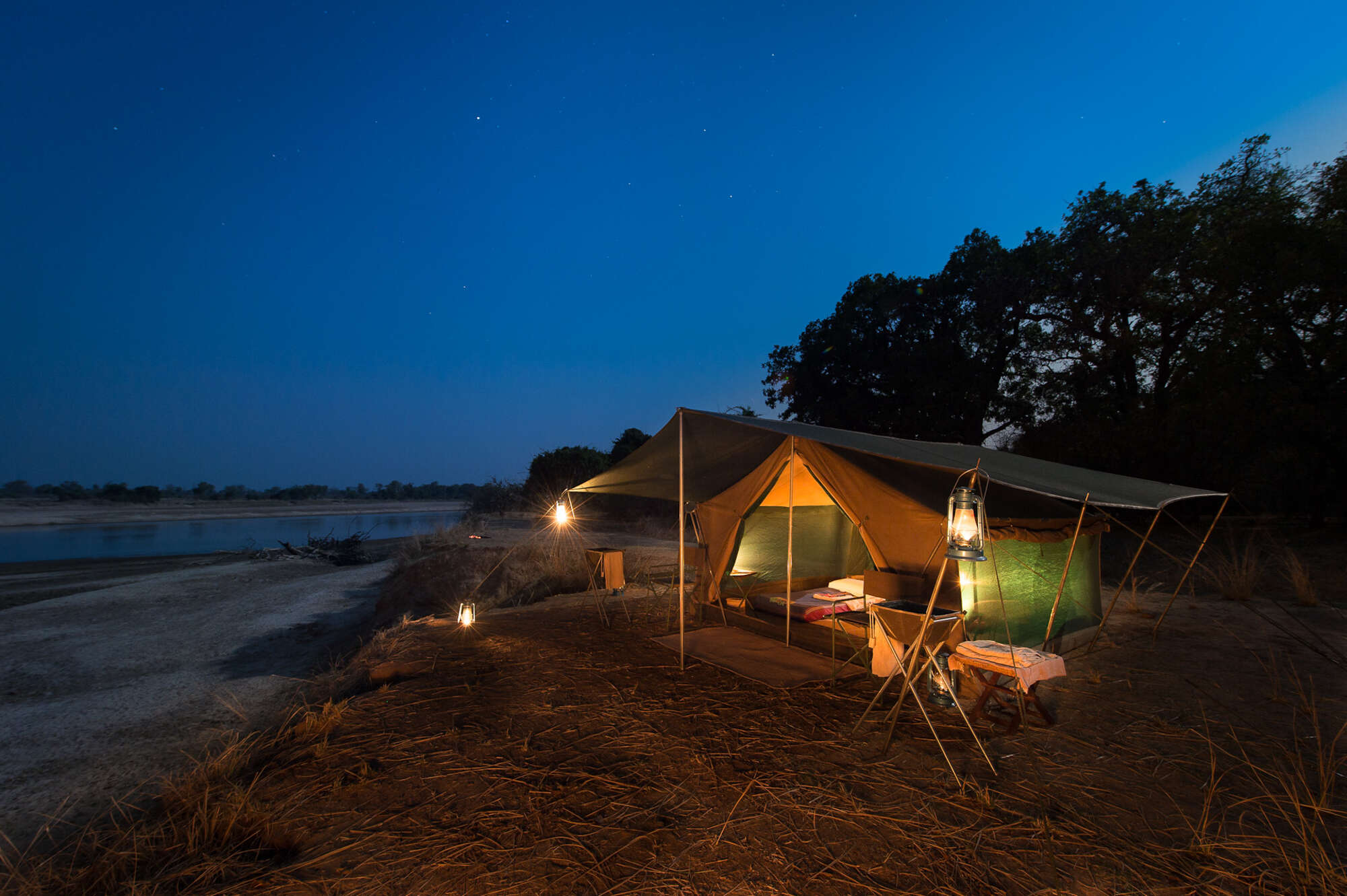About Nkonzi Camp
Deep in the untouched wilderness of South Luangwa National Park, far from the crowds...
...Nkonzi Camp offers an authentic and immersive safari experience. There are no fences, no light pollution, and no distractions. Here, beneath towering mahogany trees and vast African skies, the rhythms of nature set the pace.
Under the expert guidance of the owner Gavin Opie and his team, you’ll walk ancient elephant trails, follow the tracks of leopards in the soft morning light, and watch as buffalo stir up dust against the backdrop of a golden sunset. At night, the crackling campfire flickers under a canopy of stars, as the sounds of the bush come alive - hyenas laughing in the distance, the rhythmic grunts of hippos, and the haunting call of a Pel’s fishing owl.
There are no luxury frills here, yet the experience is rich beyond measure. With just five safari tents, a handful of like-minded travellers, and the wilderness stretching endlessly beyond, it is an invitation to embrace the simplicity and soul-stirring beauty of the Zambian bush.
Our view
Nkonzi Camp is a good option for those seeking a simpler, off-the-beaten-track experience in the Luangwa. While the camp doesn’t offer the luxuries of larger lodges, its simplicity, combined with a focus on walking safaris, allows you to take advantage of this more remote location in the park.
Accommodation
5 tents
Children
Best for 16+
Open
1 June to 31 Oct
Activities

4WD Safari

Birdwatching

Guided walking safari

Night drive
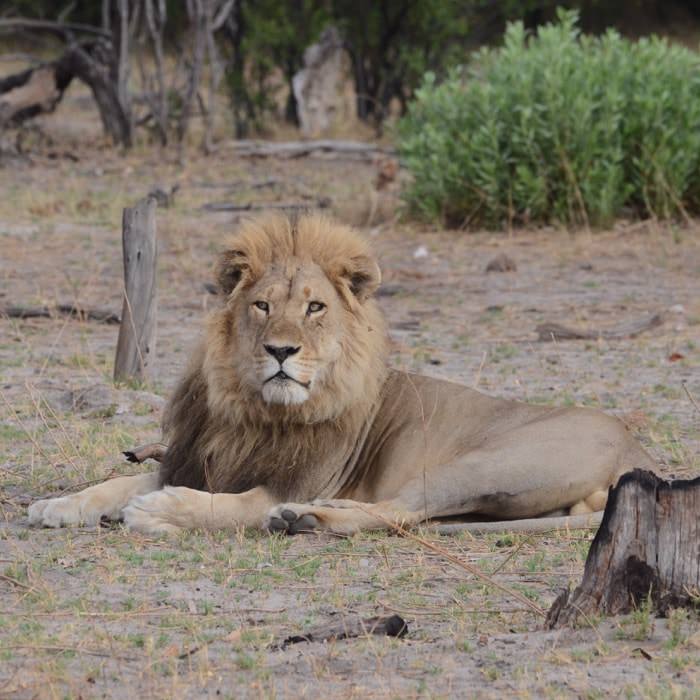
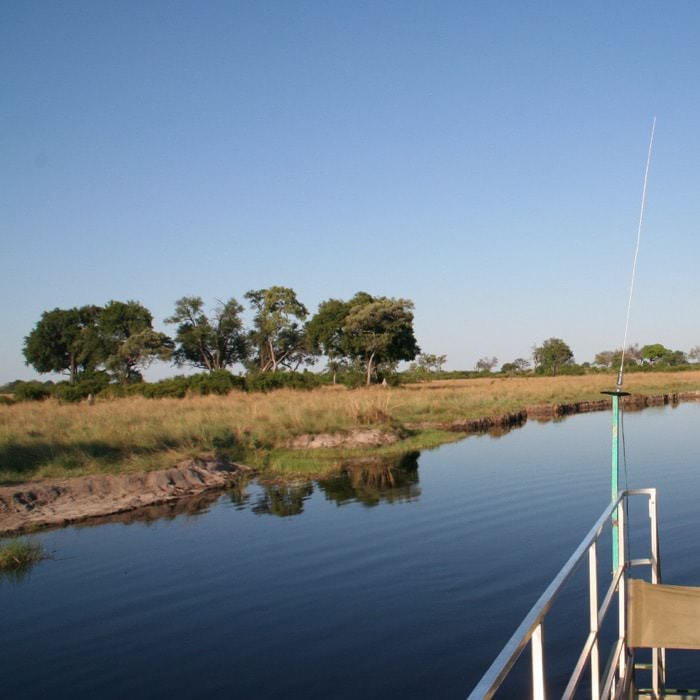
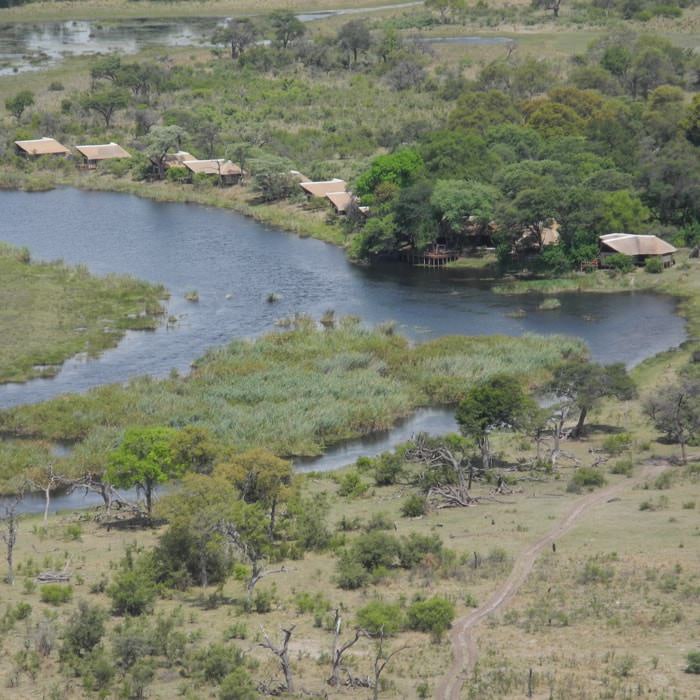
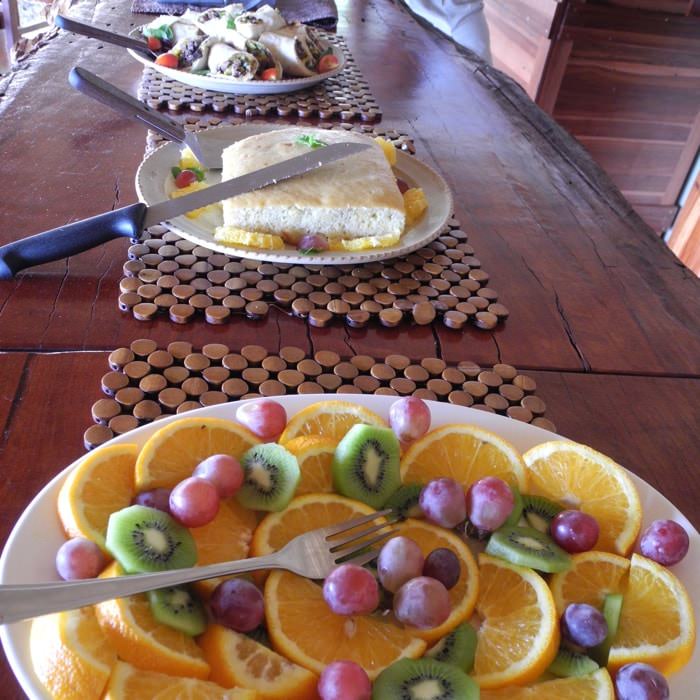
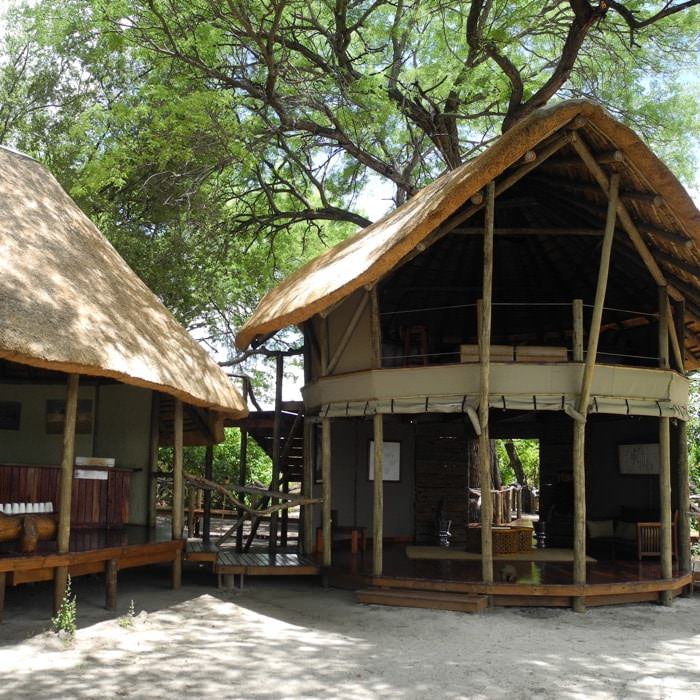
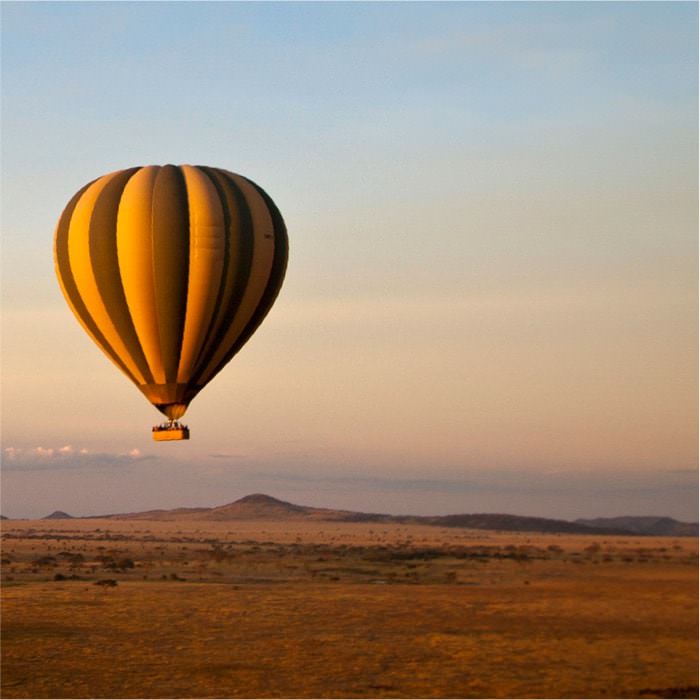
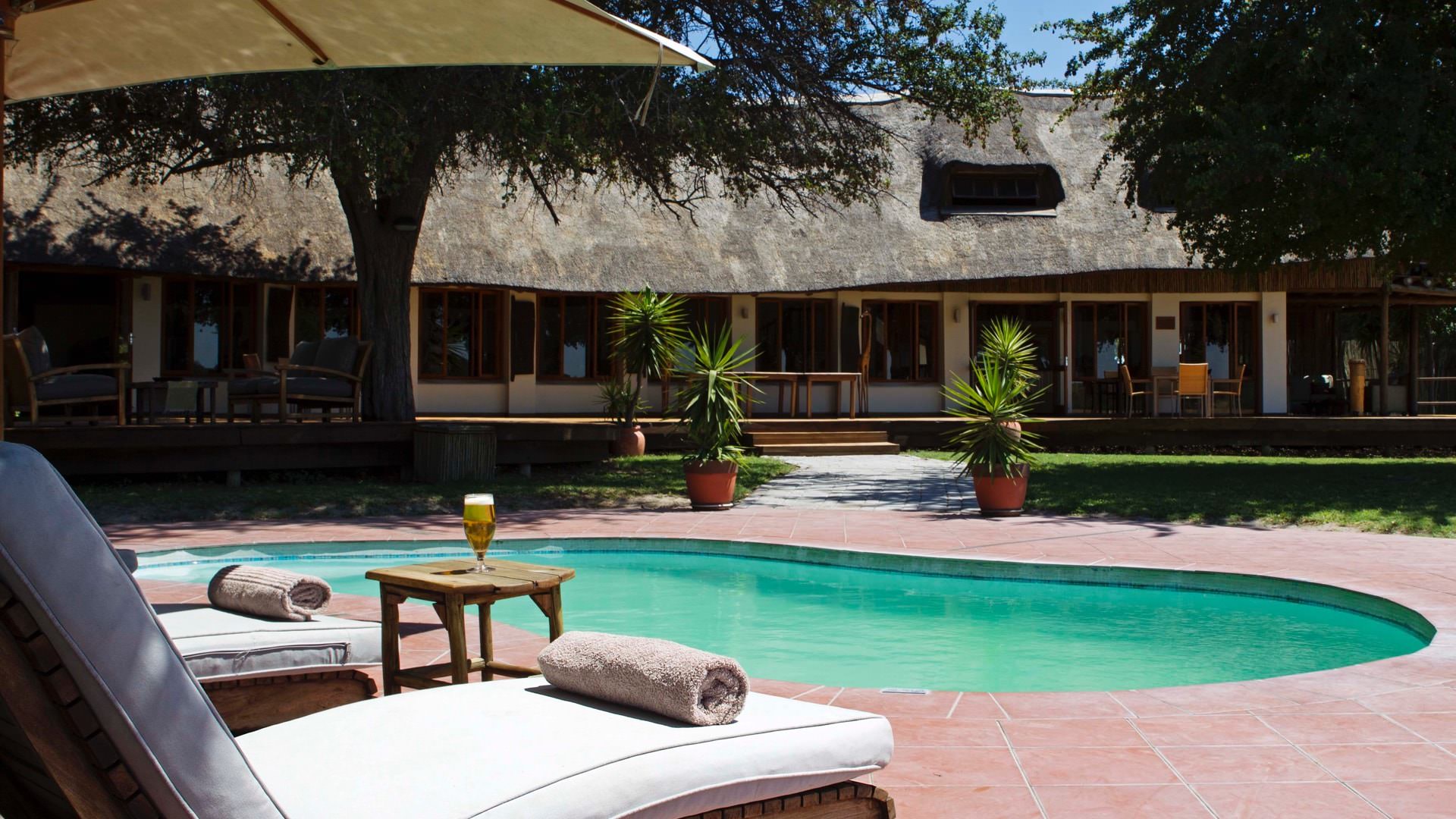
Expert Africa's gallery
When we travel we take lots of photos ourselves to give you a real and un-edited view of the safaris. See our 86 pictures of Nkonzi Camp to get the candid view.
View galleryNkonzi Camp: Our full report
A simple, rustic bushcamp, Nkonzi is tucked away deep in the heart of Zambia’s South Luangwa National Park ...
... under a canopy of Natal mahogany and ebony trees. Seasonal and owner-run, the camp’s simple approach complements the surroundings, allowing you to feel fully immersed in the Luangwa, ideal for adventurous travellers. Nkonzi Camp is a good option for those seeking a simpler, off-the-beaten-track experience in the Luangwa; while the camp doesn’t offer the luxuries of larger lodges, its simplicity, combined with a focus on walking safaris, allows you to take advantage of this more remote location in the park.
Set amongst grassy plains, Nkonzi has a remote location alongside the Luwi River, a seasonal sand river that attracts a variety of animals. Open between June and October, when the dry season brings the wildlife closer to the river and waterholes, this small owner-run camp provides a more classic bushcamp safari.
Nkonzi Camp is purposefully simple, with five safari tents spaced out under the shade of mature evergreens. Each tent has either twin or double beds, a small seating area, and an open-air en-suite bathroom with a classic safari-style bucket shower and flush toilet. Reed matting and solar lights add to the rustic charm, and the camp’s remote location means you’re often likely to have wildlife wandering past your tent.
The central area of the camp comprises a small but welcoming lounge and dining space under a large stretch canvas tent; comfortable sofas provide space to relax, grab a book from the mini library, or enjoy a drink from the bush bar. Meals are freshly prepared and often served al fresco, often under the canopy of trees or beneath a blanket of stars. A fire pit serves as the camp’s social hub, a great spot to gather in the evenings after the afternoon activity.
Nkonzi Camp specializes in walking safaris, a quintessential South Luangwa experience. Led by highly experienced guides, these walks take you deep into the bush to explore the flora, fauna, and smaller details often overlooked on game drives.
The camp also offers day and night game drives and, due to Nkonzi’s location in a quieter area of the park, this does often mean fewer vehicles and a more intimate wildlife-viewing experience.
A typical day on safari at Nkonzi Camp follows a rhythm in tune with the bush: an early morning wake-up call, with coffee around the fire, before your morning safari activity. Brunch is served back at camp and there’s time to relax in the shade, before afternoon tea, followed by an evening game drive, sundowners in a scenic spot and a tasty dinner under the stars, with stories shared around the campfire
This isn’t the most luxurious of camps by any means, but we like its simplicity and the way the off-grid, solar-powered set-up aligns with their commitment to sustainability, allowing travellers to enjoy their safari with a minimal environmental footprint on the local surroundings.
A stay at Nkonzi Camp is not just about ticking off the Big Five—it’s about immersing yourself in the sights, sounds, and rhythms of the bush. Whether sitting around the evening campfire under a sky ablaze with stars, setting out at dawn on foot to follow fresh animal tracks, or pausing for sundowners in a scenic clearing, guests at Nkonzi become part of the landscape rather than just observers.
We haven’t had the chance to visit the camp recently but are looking forward to the opportunity to revisit and experience again this off the beaten track section of the South Luangwa.
Due to its location, many travellers prefer to combine Nkonzi Camp with time at one of the camps either close to the central Mfuwe area (perhaps Kafunta, or Flatdogs), or one of the bushcamps a bit further north, Tafika and its satellite bushcamps or Mwamba Bushcamp are some of our favourites in this area.
Activities
4WD Safari
Birdwatching
Guided walking safari
Night drive
Families & children
- Attitude towards children
- Nkonzi welcomes children of 12 years and older.
- Special activities & services
- None
- Equipment
- None
- Generally recommended for children
- Although children are welcome, the camp is largely one for older children or adults. We recommend Nkonzi Camp for children over the age of 16.
- Notes
- Nkonzi is in a remote location in the national park, and is not fenced, so animals roam freely through the camp. Children must be supervised at all times by a parent or guardian.
Food & drink
- Usual board basis
- Full Board & Activities
- Food quality
- A buffet breakfast is normally available in the main tent before the early-morning activity and guests generally around the campfire. Brunch is served after the morning activity, and dinner once everyone has returned from sundowners and the night drive.
- Dining style
- Group Meals
- Dining locations
- Indoor and Outdoor Dining
- Drinks included
- Soft drinks, house wine and local spirits are included in the rates. Filtered drinking water is included, and provided in the rooms.
Getting there
- Location
- South Luangwa National Park, Zambia
- Ideal length of stay
- We'd recommend a stay of two to four nights at Nkonzi, before moving either north or south to an additional, complementary location in the South Luangwa.
- Directions
- Nkonzi Camp is about a 45-minute drive to the main gate of the South Luangwa, then another 45 minutes drive through Mfuwe Village to Mfuwe Airport.
- Accessible by
- Fly-and-Transfer
Communications
- Power supply notes
- The camp runs on solar power, but has a backup generator. A central charging point is in the main tent.
- Communications
- There is no WiFi, and limited cellphone reception at Nkonzi, but in an emergency the camp uses radio to communicate with the main office.
- TV & radio
- None
- Water supply
- Borehole
- Water supply notes
- Jugs next to the basin and the bucket shower are filled with hot water on request. There are flush toilets in each of the bathrooms.
Health & safety
- Malarial protection recommended
- Yes
- Medical care
- Management staff and guides are first aid trained, and there is a doctor in Mfuwe, about an hour's drive away. For emergencies, Nkonzi has links to a flying doctor service.
- Dangerous animals
- High Risk
- Security measures
- The camp is unfenced, and animals roam freely. You will be escorted to and from your tent in the hours of darkness. An airhorn is in each tent to signal to staff in case of emergencies.
- Fire safety
- There are fire extinguishers and a bucket of sand in each tent and the main area.
Useful info
- Disabled access
- On Request
- Laundry facilities
- A complimentary laundry service is included, but this does not include ladies' underwear; soap for this is provided in the tents. Clothes are hand-washed and coal-ironed.
- Money
- No exchange facilities are provided.
- Accepted payment on location
- Nkonzi accepts cash payment for any extras in UK pounds, US dollars, euros and Zambian kwacha.
Plan and book your trip with Expert Africa
All of our trips are tailor-made, so we'll always adapt them to suit you. Talk to an Expert and let us plan and arrange your perfect trip.

Talk to an Expert
Call or email us now! We’ll match you with the Specialist in our team who is best suited to help you. Then together we can start planning your trip.

Set up your itinerary
Based on our experience and your ideas, your specialist will create a detailed, costed itinerary. We’ll refine it together, until we have a trip that you’re perfectly happy with.

Prepare for your trip
The same Specialist will make the seamless arrangements for your trip, send you detailed travel documents, and be available to answer any questions before you depart.

Travel with peace of mind
After you set off, you’ll be cared for by our partners in Africa, most of whom have worked with Expert Africa for decades. And if you ever need us urgently, we’re available 24/7.

When you return
We love to learn about your trip, and so will always be grateful if you’ve the time to give feedback to your Specialist when you return.
Nkonzi Camp's location
Look closer at the environment and surroundings of Nkonzi Camp.
Other lodges in South Luangwa National Park
Alternative places to stay in this same area.
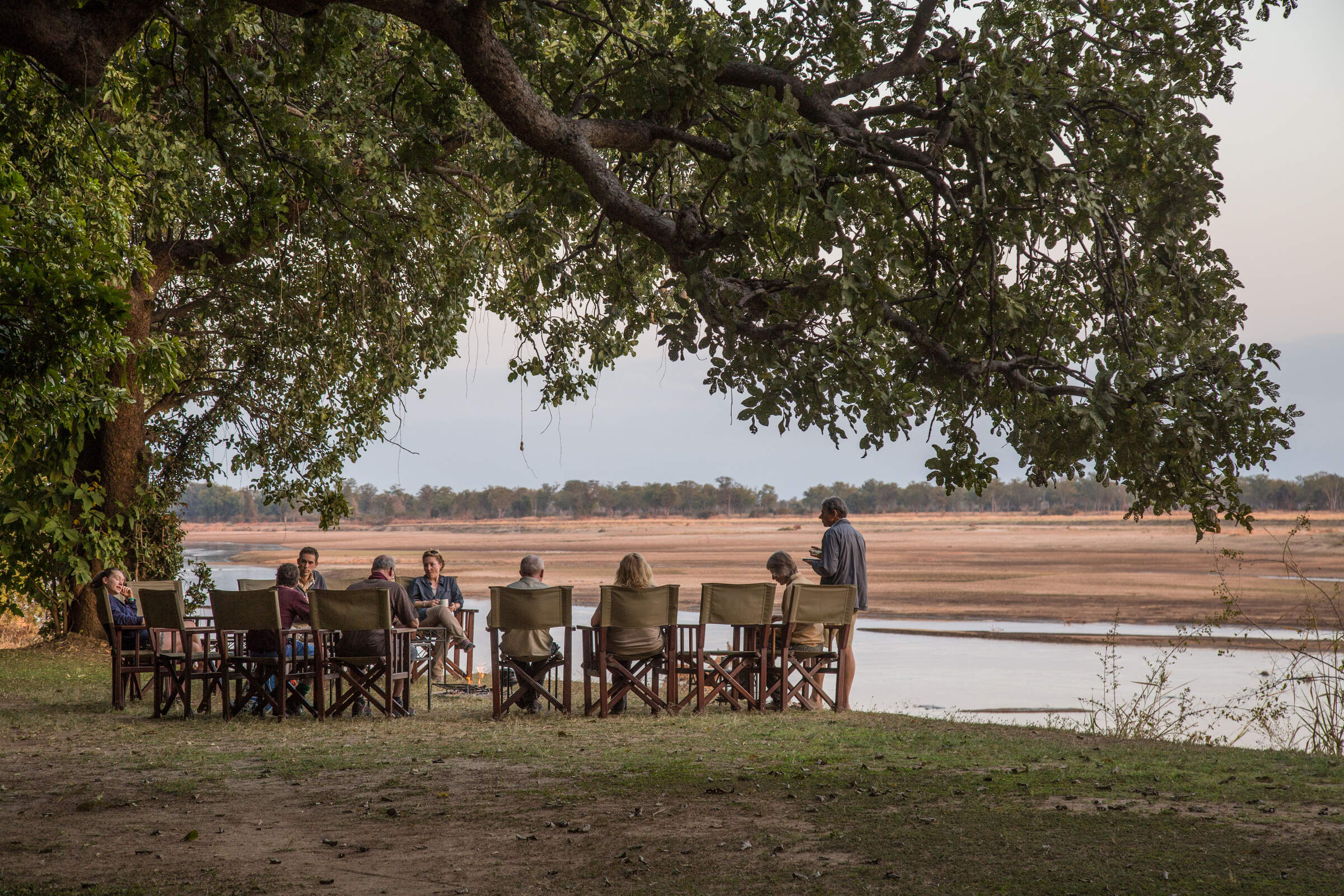
Tafika
One of the best camps in Zambia, Tafika is naturally built, combining excellent service and food with top guiding skills for a superb wildlife experience.
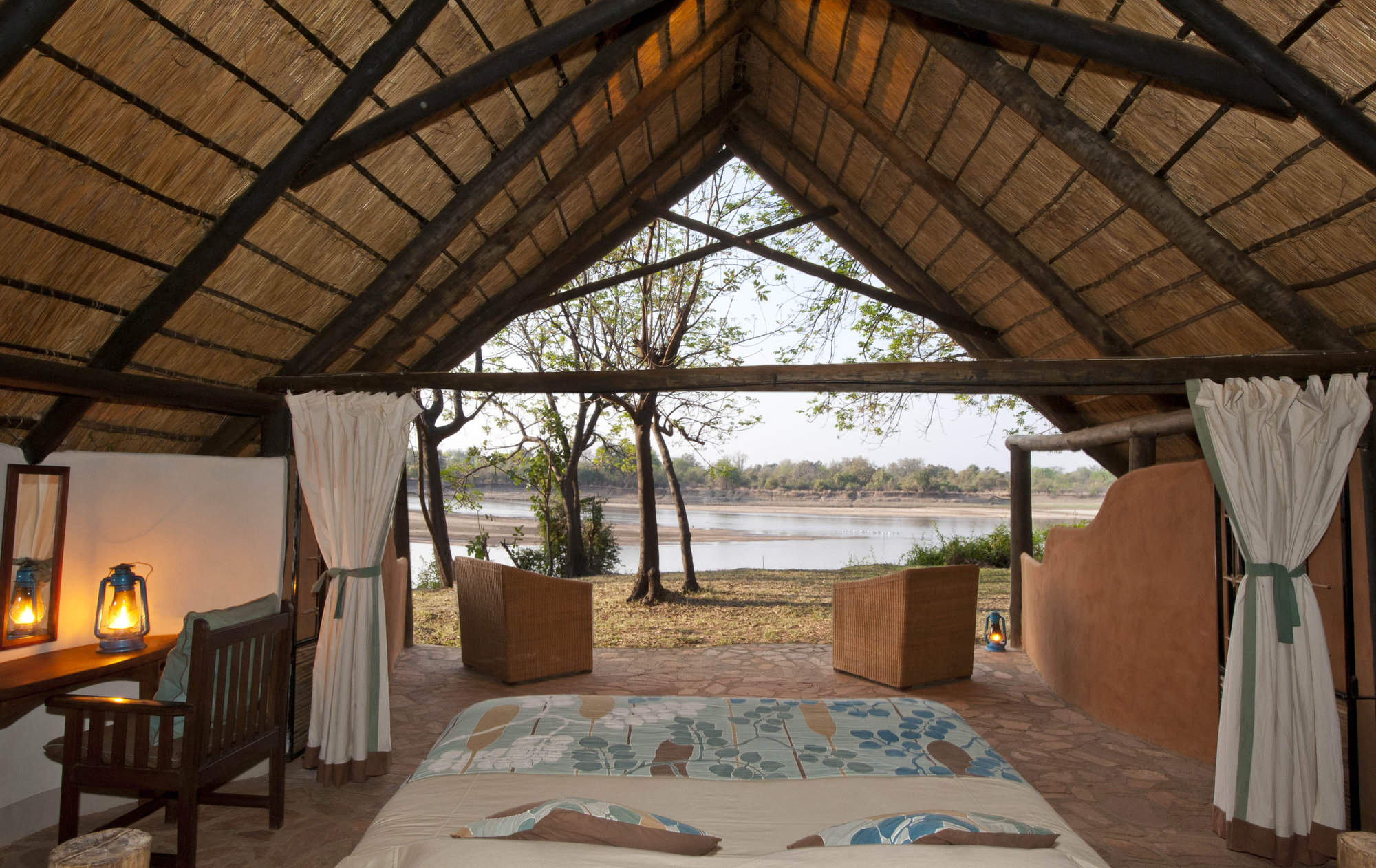
Nkwali
On the banks of the Luangwa River, with its own access to the national park, the intimate Nkwali is open year round.
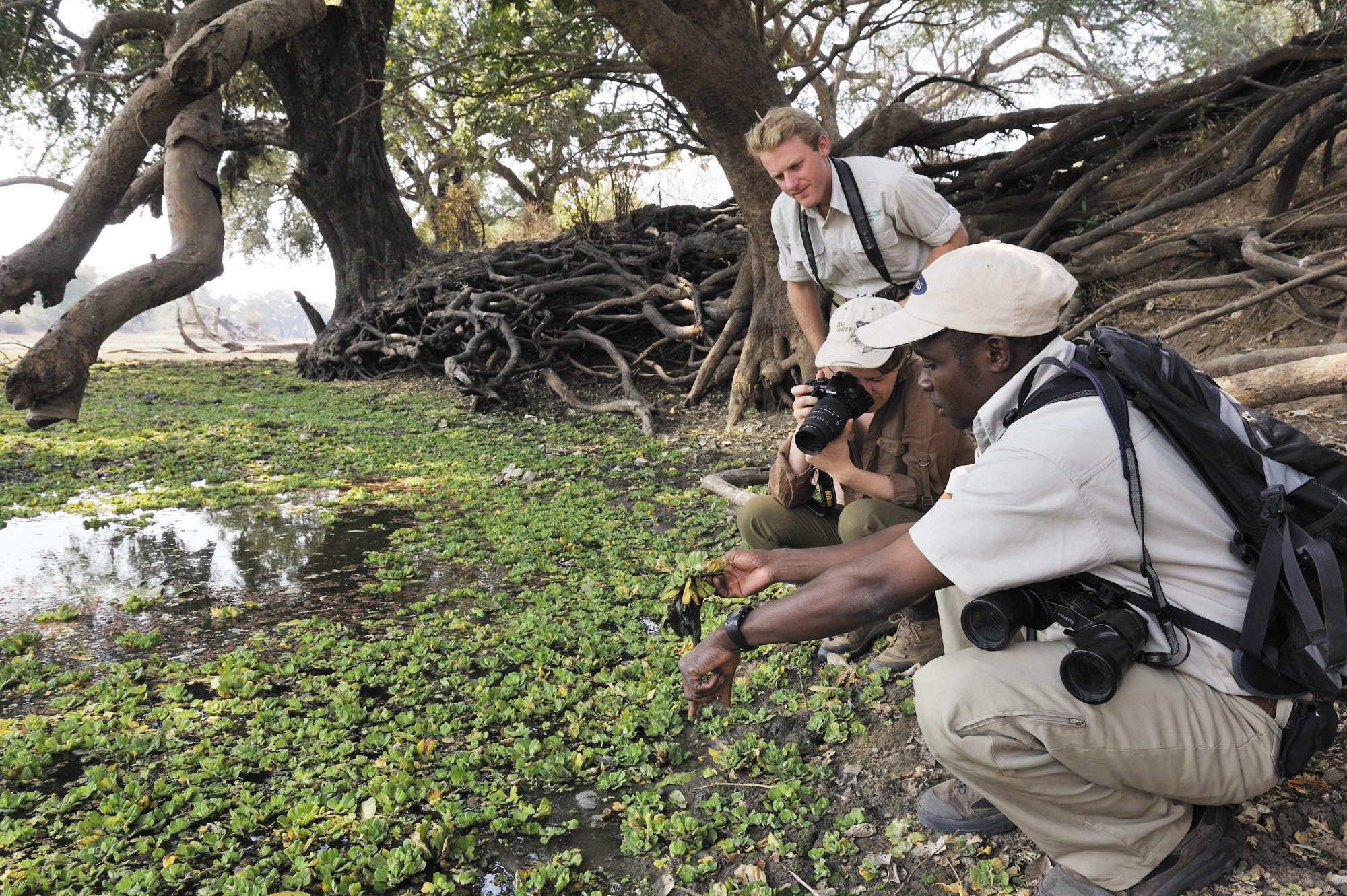
Kaingo Camp
Small and owner-run, the riverside Kaingo occupies a a quiet but excellent game area, with a series of wildlife hides and a focus on photography.
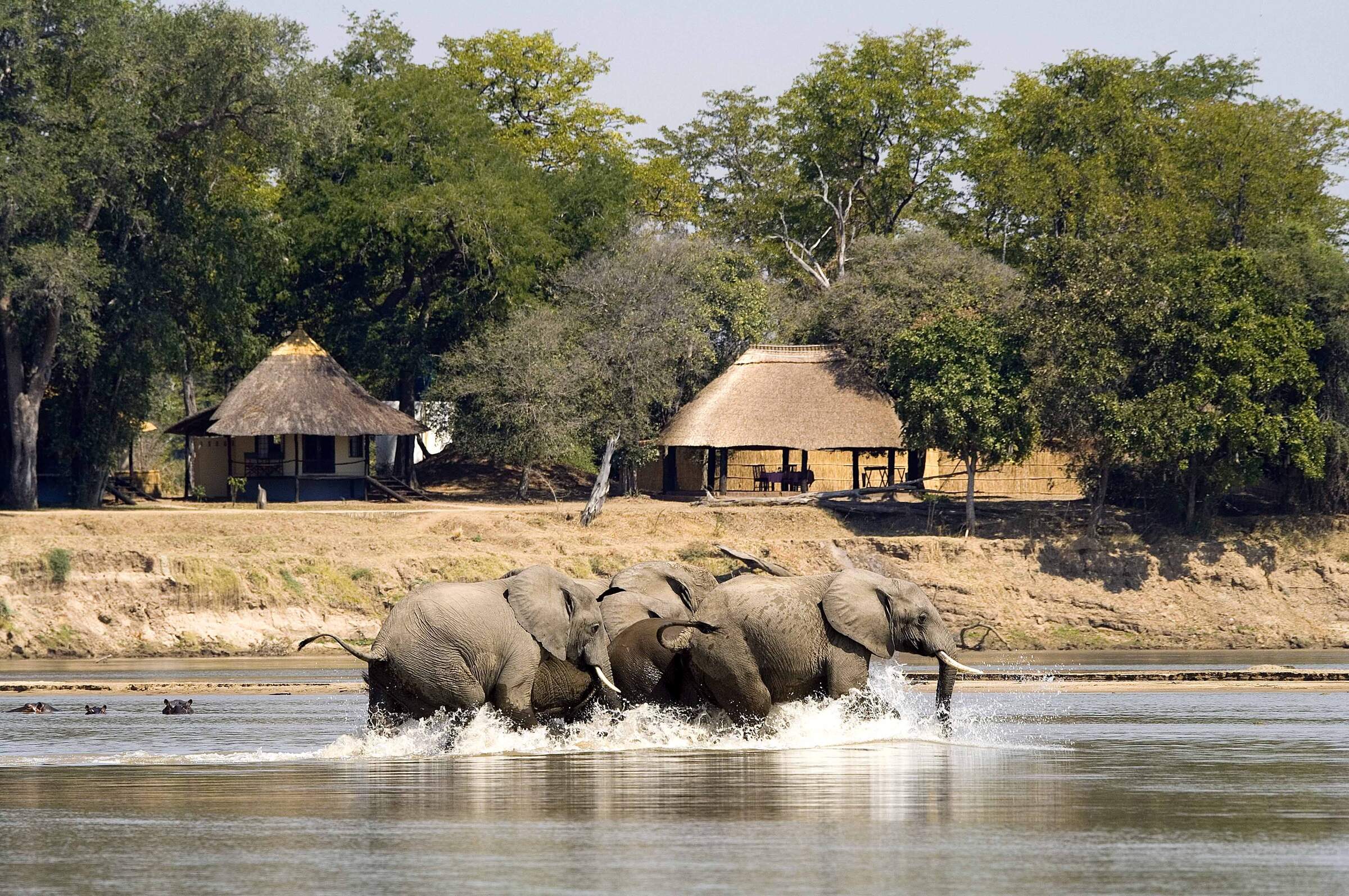
Nsefu
One of the Luangwa's oldest camps, Nsefu is a great safari camp in a remote, beautiful and game-rich location with top-rate guiding.
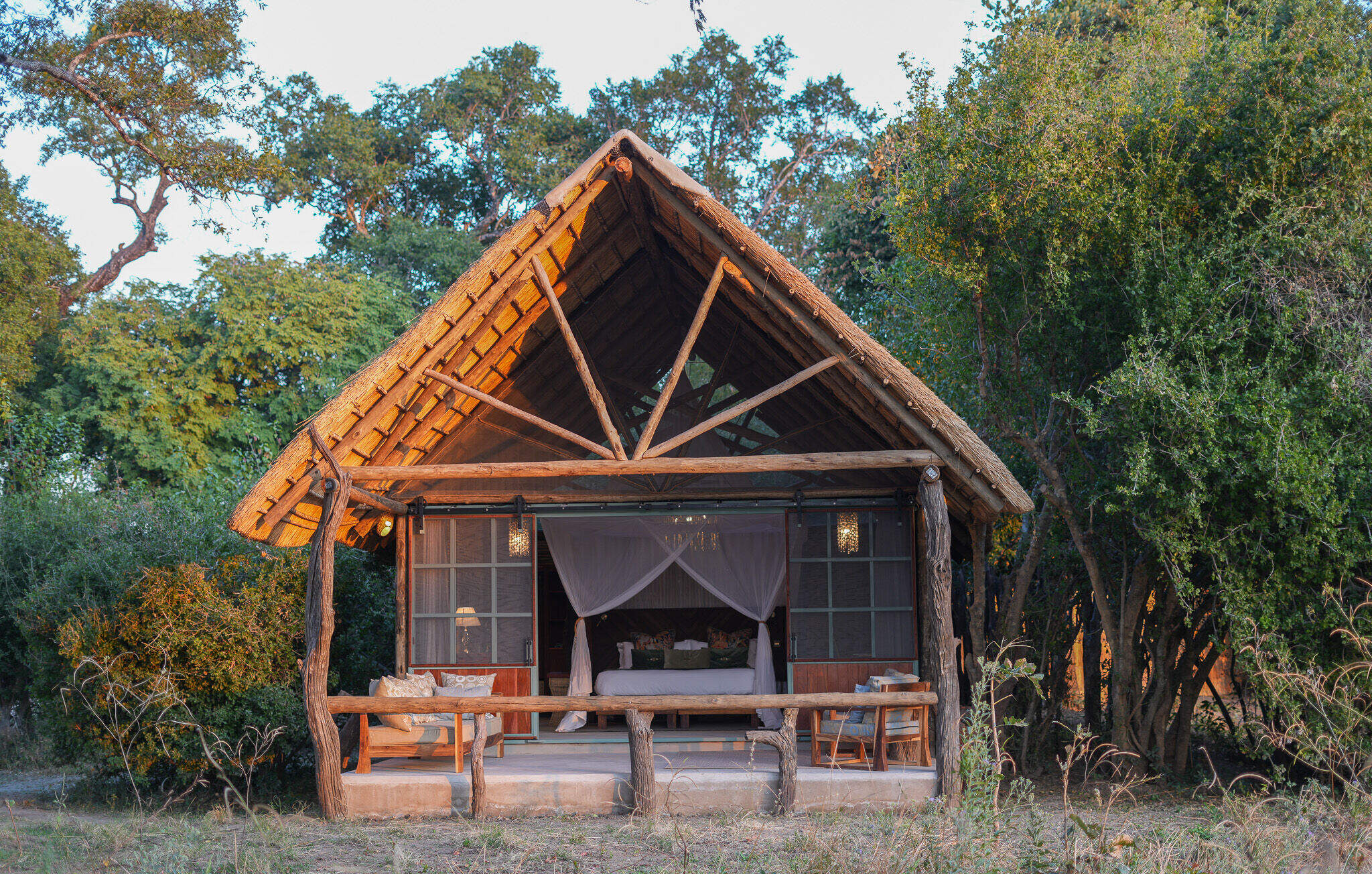
Mwamba Bushcamp
Small, remote and owner-run, Mwamba offers first-class walking, 4WD safari drives and superb hides, with excellent guides and a real bush feel.
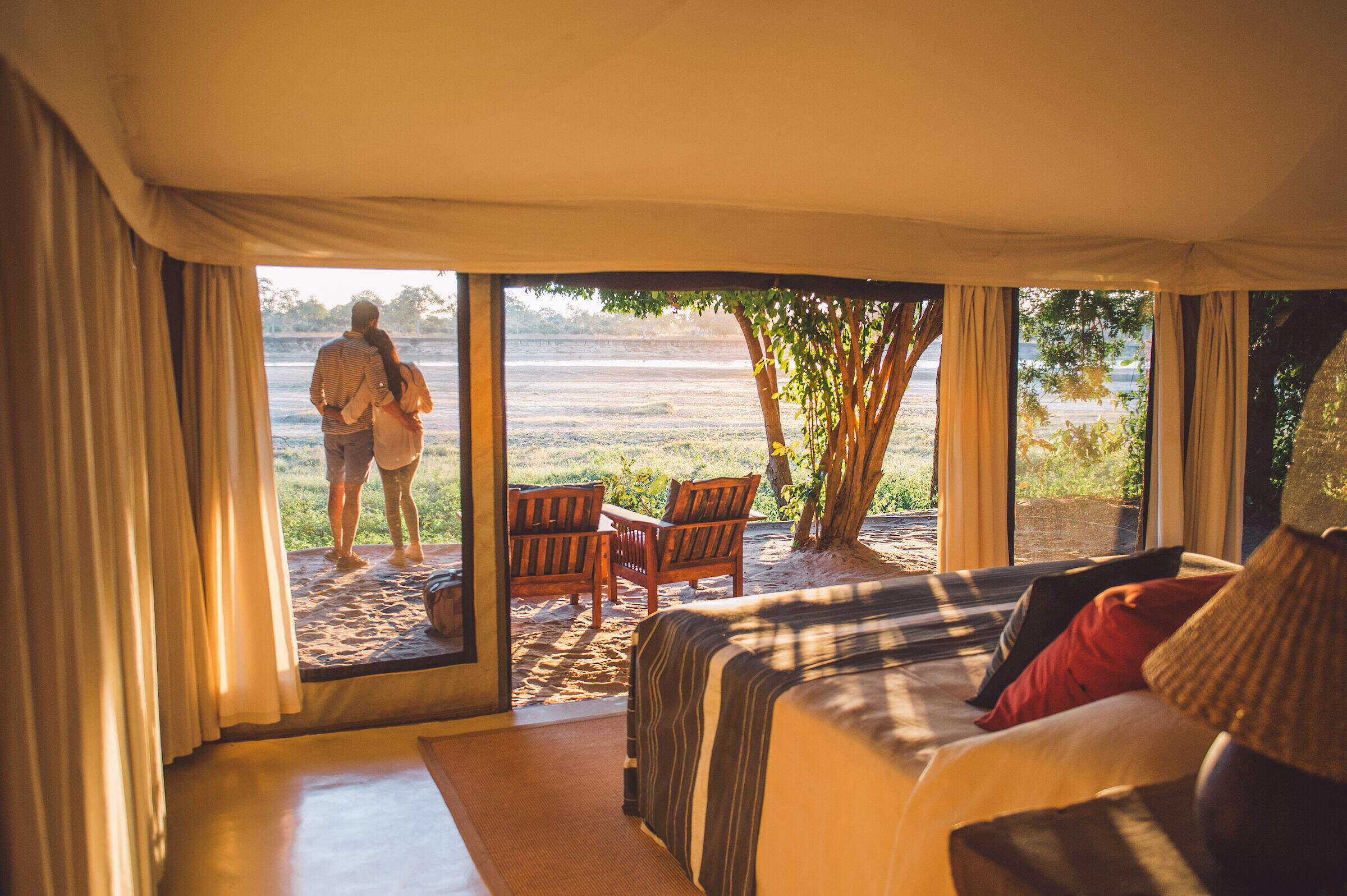
Tena Tena
One of the Luangwa's best camps, in a beautiful, remote bush location, Tena Tena is very small, exceedingly well-run and has top-rate guiding.
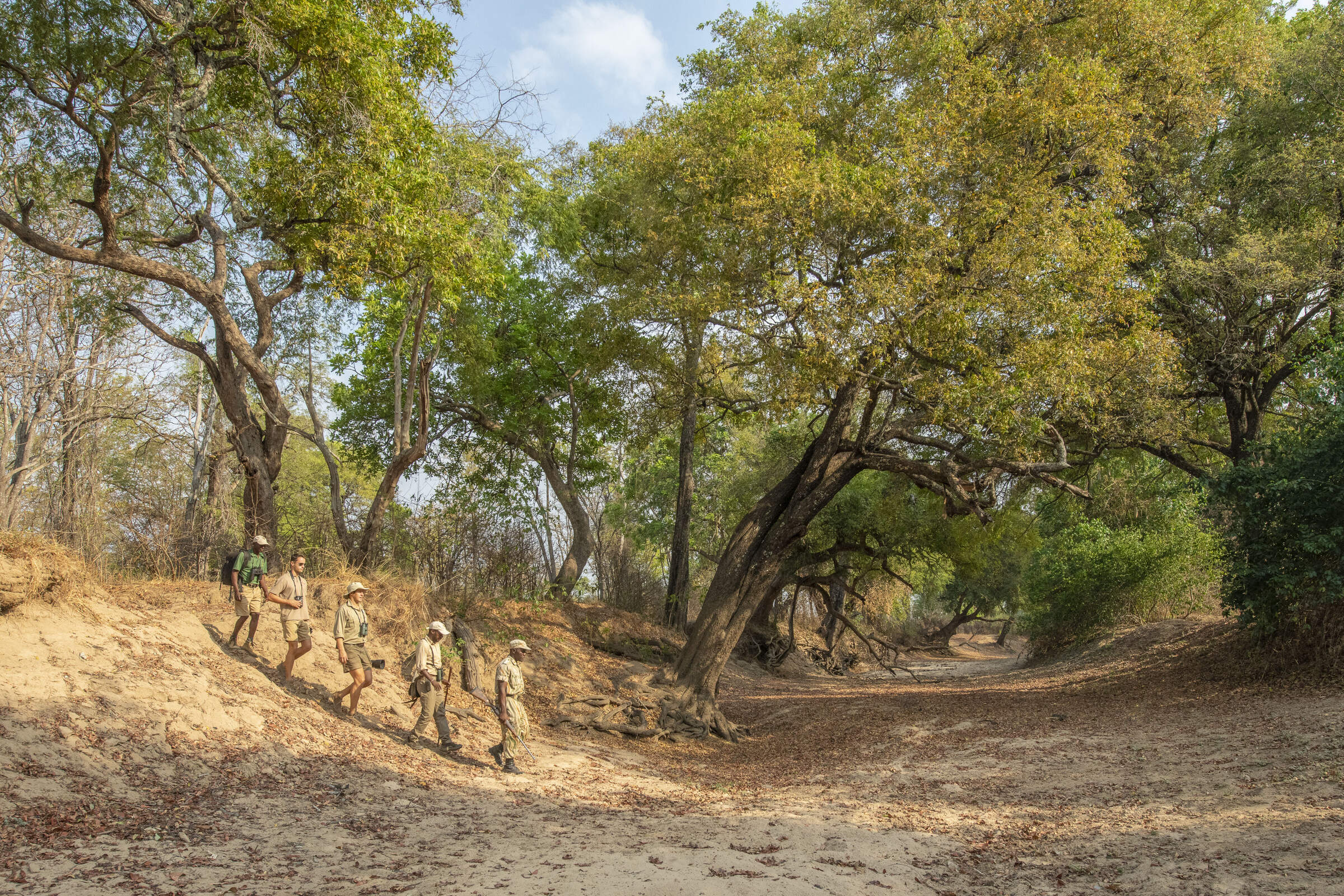
Chikoko Tree Camp
Chikoko Tree Camp is an excellent small, rustic bushcamp that concentrates on walking safaris, and is run by a top-quality operation.
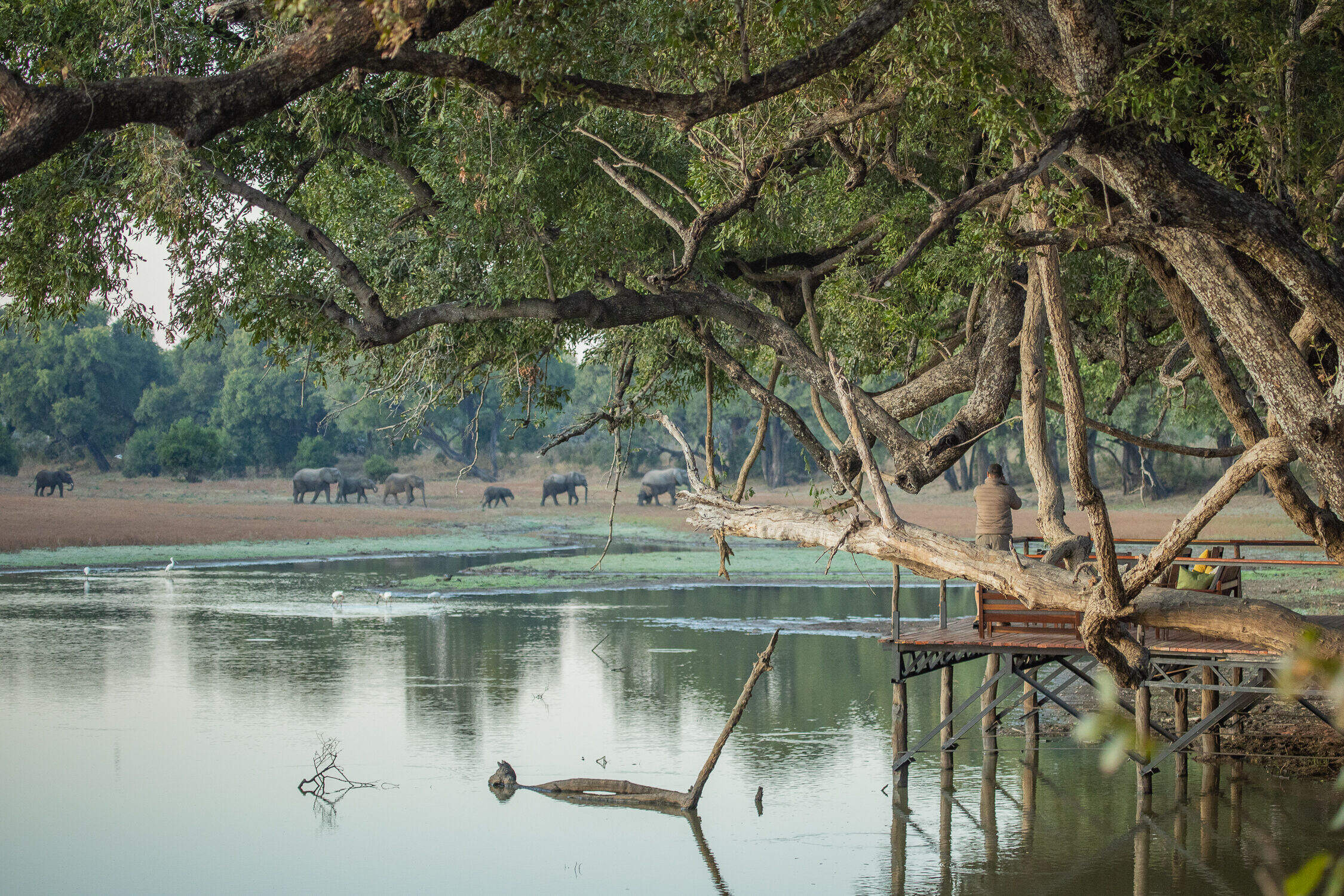
Big Lagoon Camp
Big Lagoon Camp is a great little rustic bushcamp built to high standards that focuses on excellent walking safaris, with the emphasis on top wildlife guides.
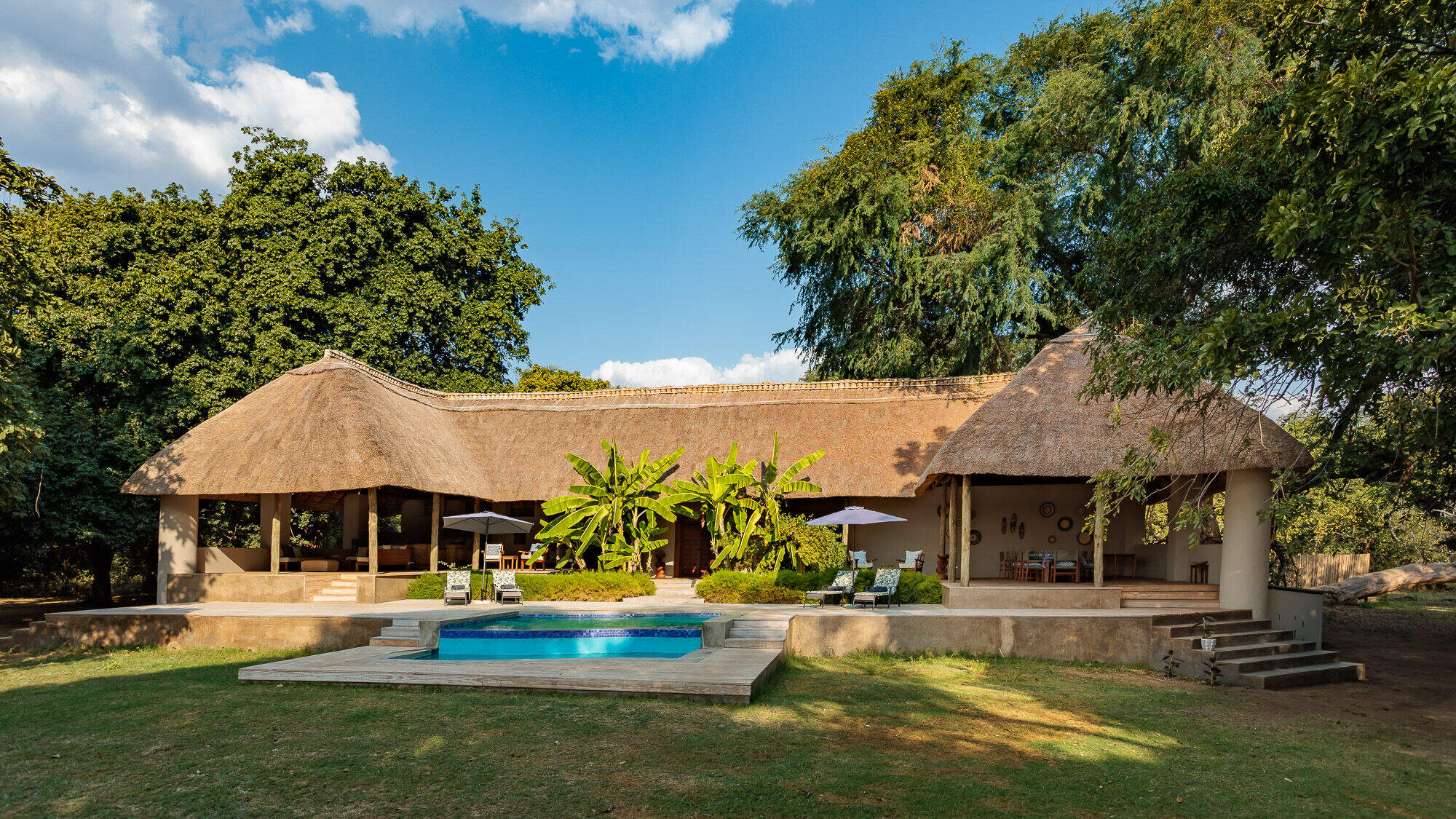
Luangwa River Camp
Luangwa River Lodge is a small and consciously stylish lodge in the Mfuwe area, overlooking the Luangwa River and the South Luangwa National Park beyond – an area renowned for great game.
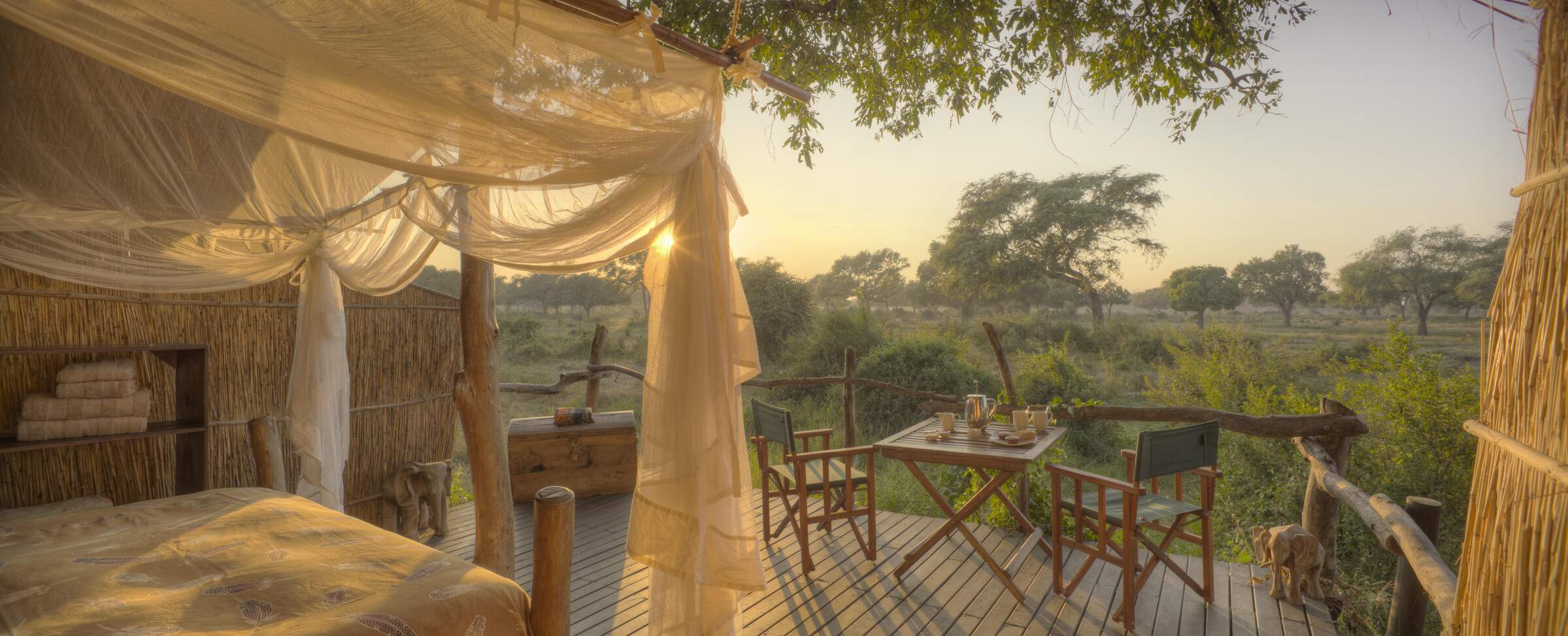
Flatdogs Camp
A relatively big safari camp, Flatdogs offers value for money with great guiding and good food in a comfortable, relaxed setting.
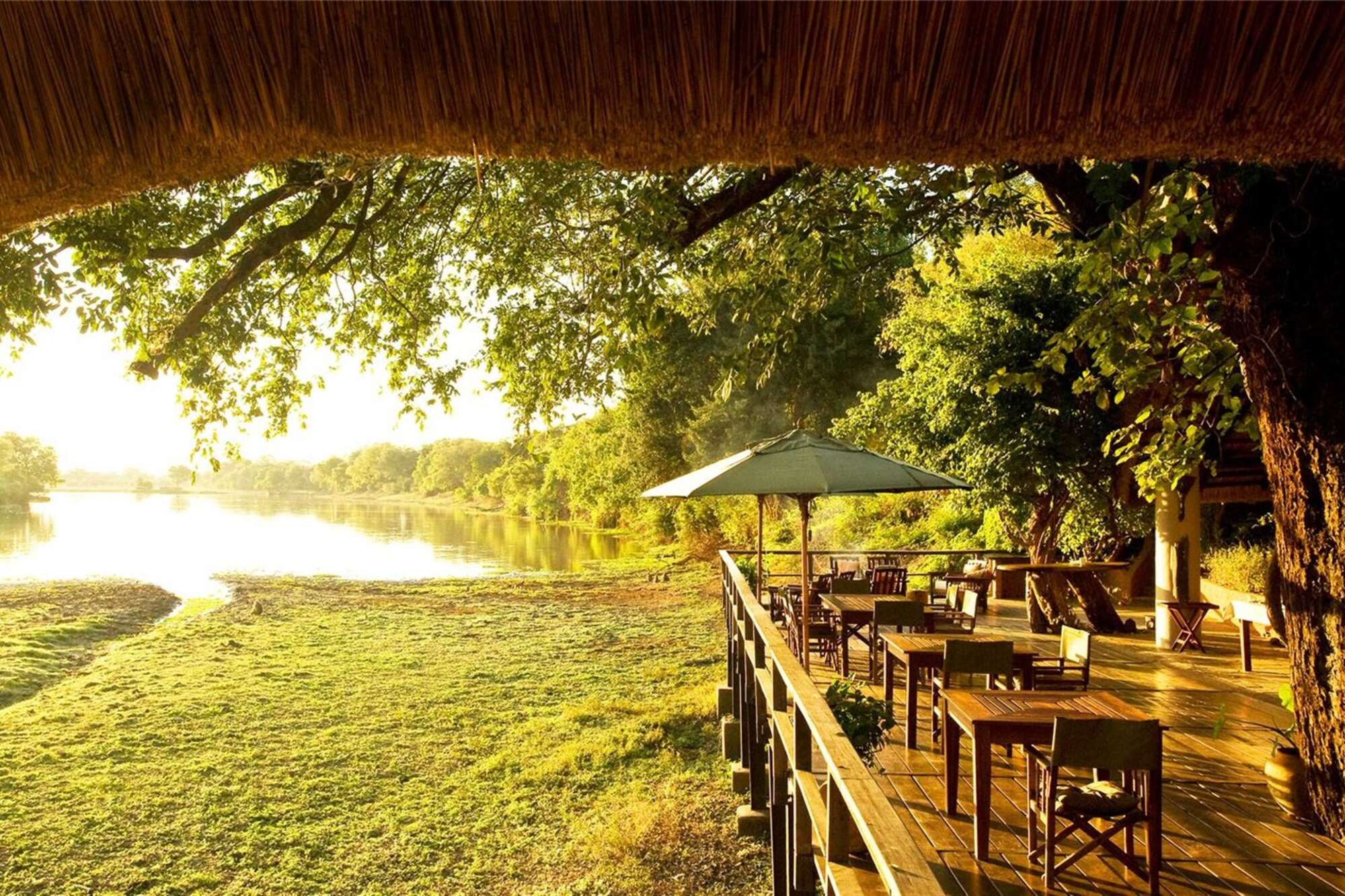
Kapani Lodge
Kapani Lodge is now the main office base for Norman Carr Safaris, one of the Luangwa's oldest safari operations.
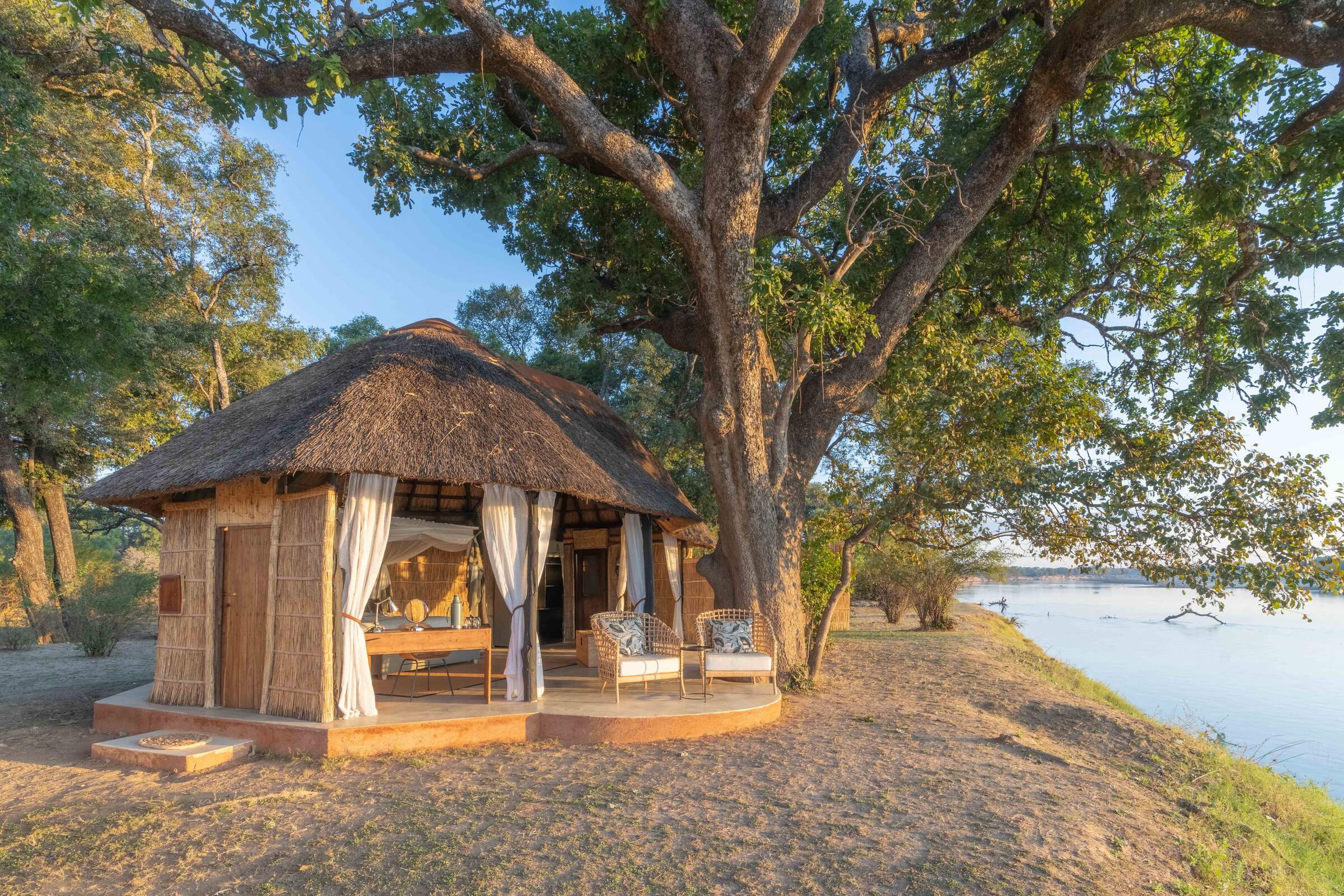
Mchenja Bushcamp
Set in a shady ebony grove on the banks of the Luangwa, Mchenja is a smart tented bushcamp. It combines well with Kakuli and Nsolo – its sister camps with a focus on walking safaris.
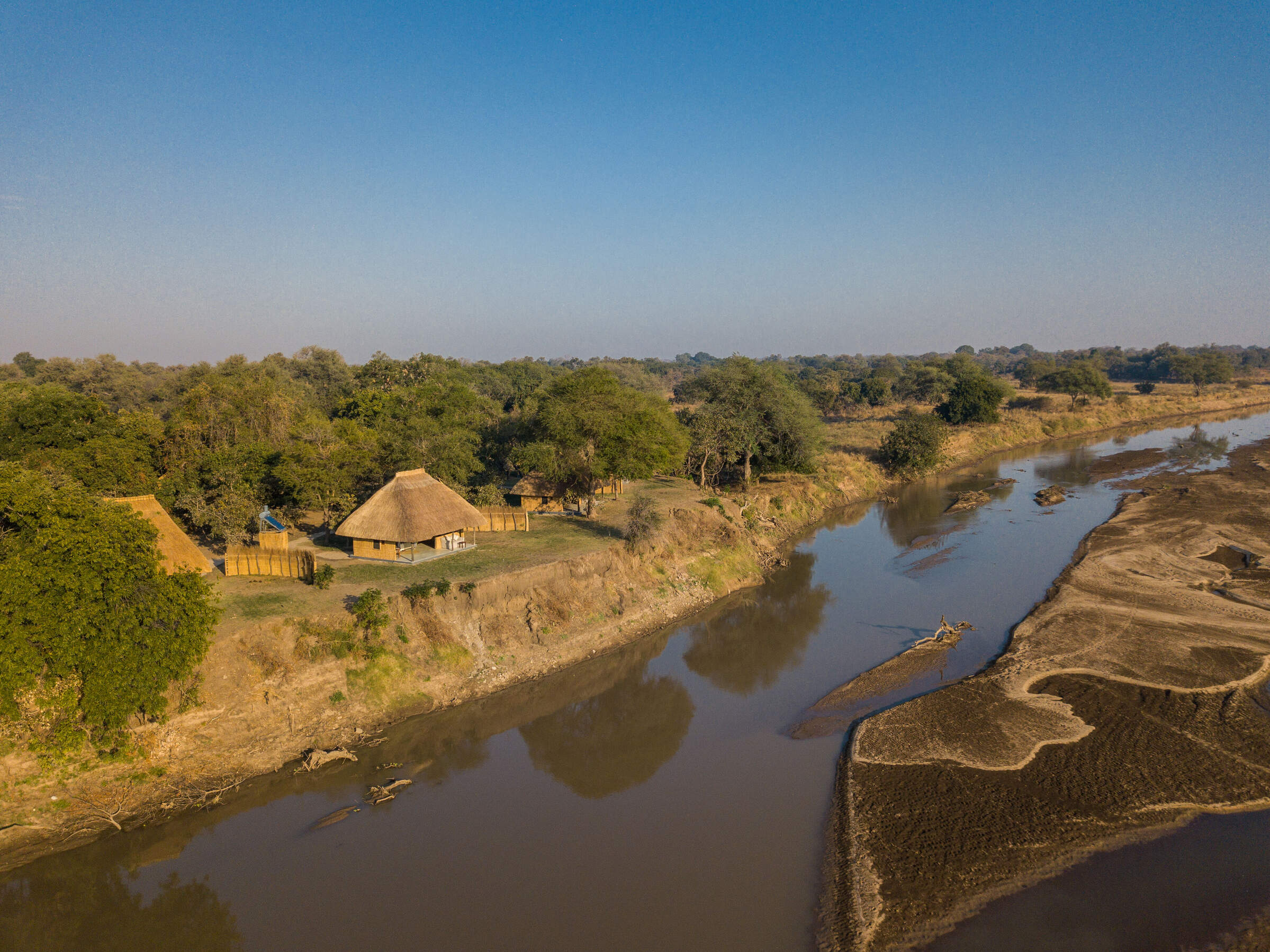
Kakuli Bushcamp
Beside the Luangwa River, Kakuli is a comfortable tented bushcamp offering 4WD safaris and walking safaris – the best of which are camp-to-camp walks linking Kakuli with its nearby sister camps.
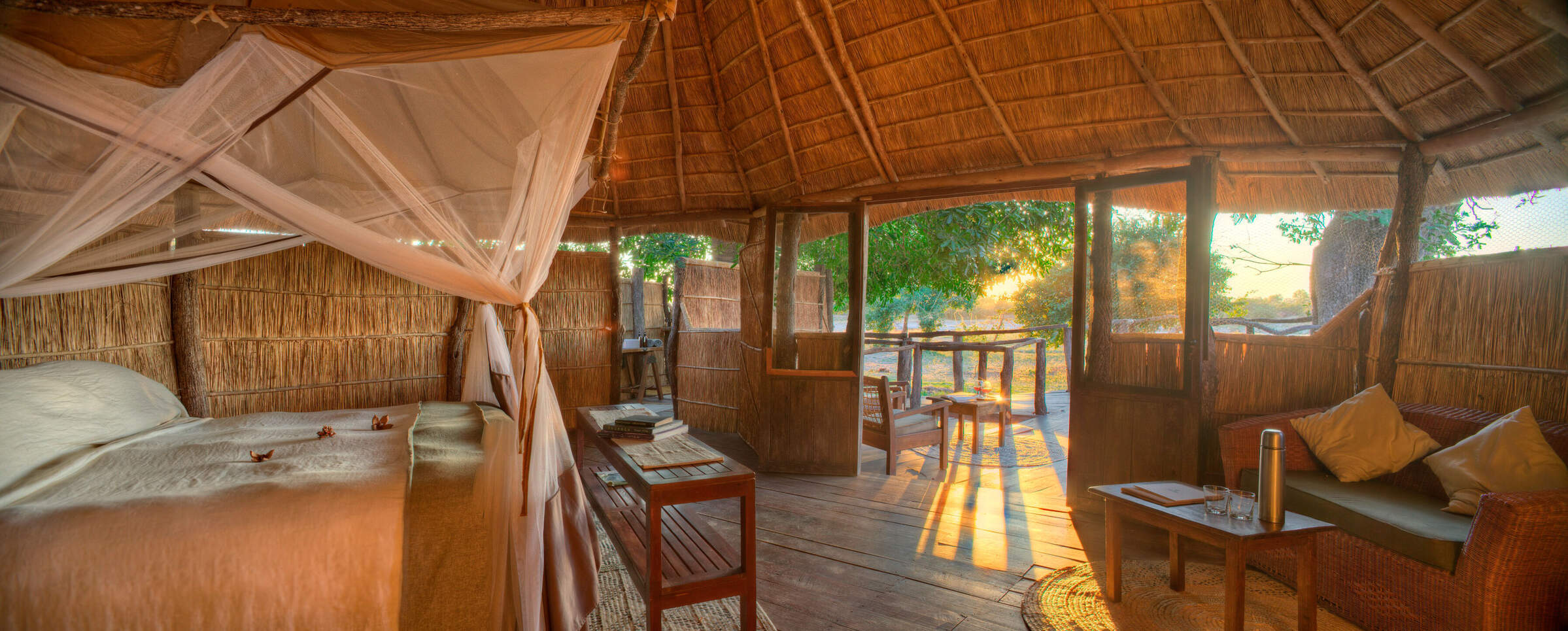
Nsolo Bushcamp
Nsolo is a small, comfortable bushcamp overlooking one or two pools in the usually dry Luwi riverbed. It concentrates on walking safaris in an interesting and diverse area, led by a knowledgeable guide.
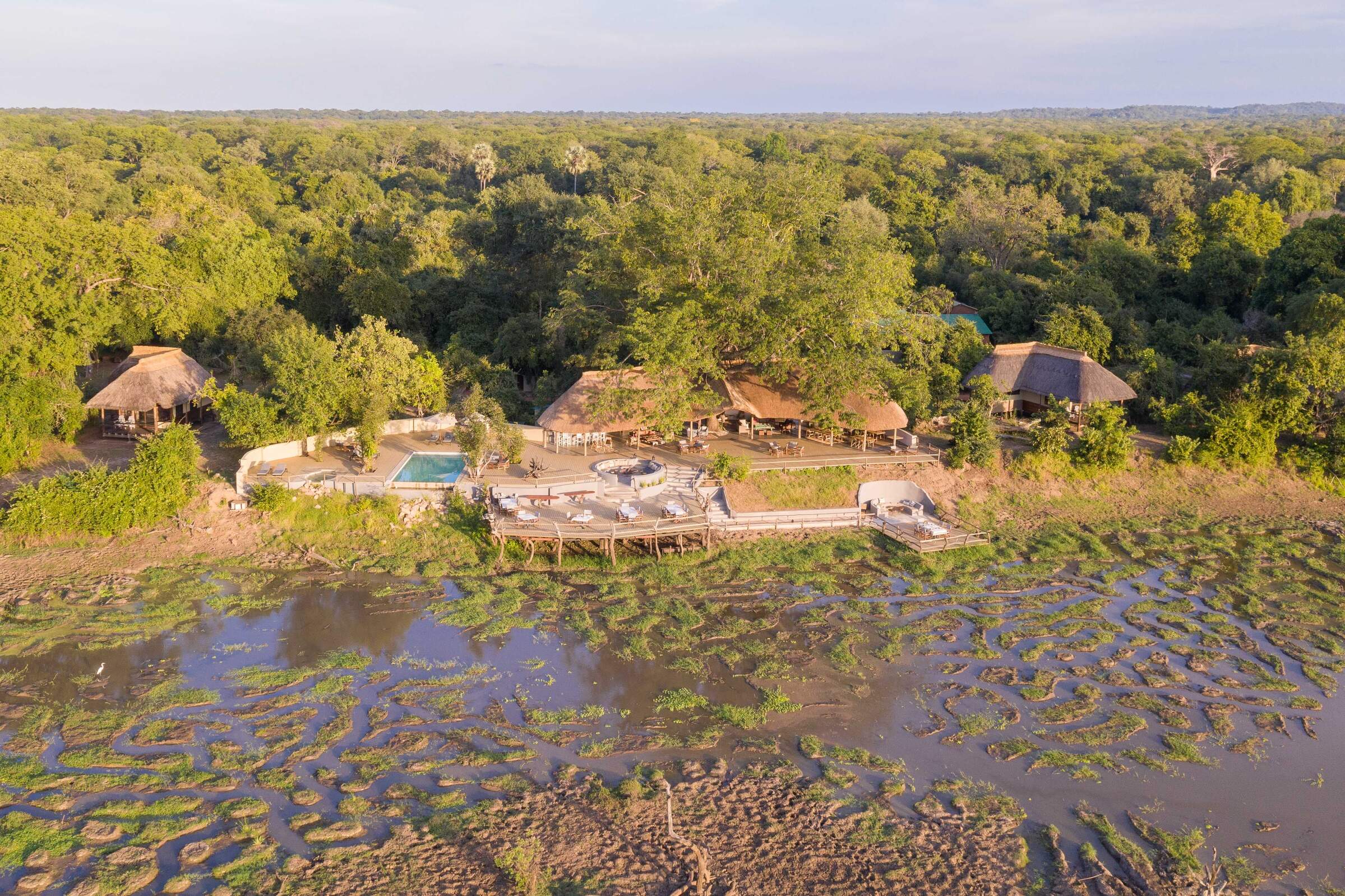
Kafunta River Lodge
Kafunta is a laid-back, friendly and good-value lodge on the outskirts of South Luangwa National Park.
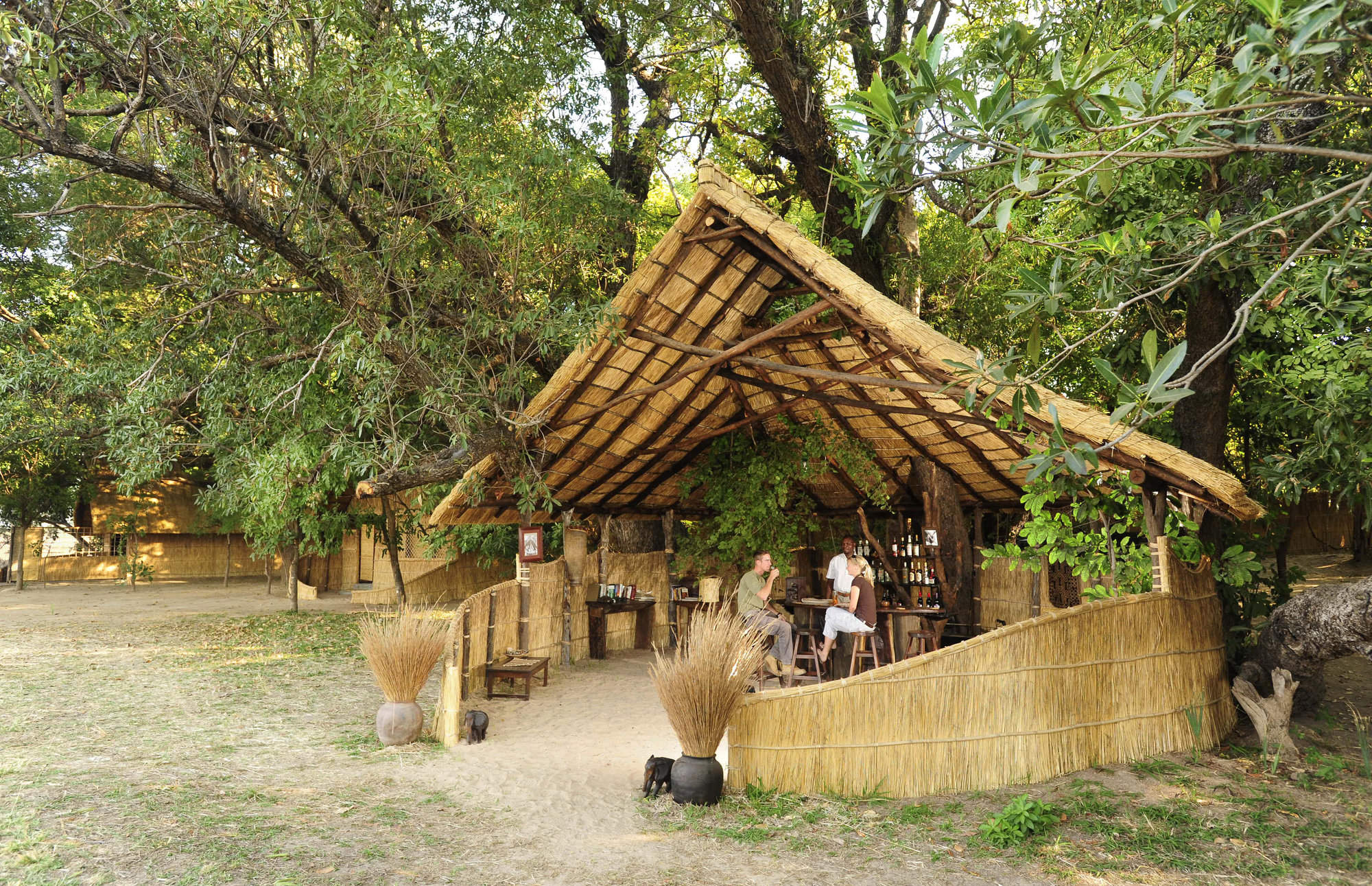
Luwi Bushcamp
In a remote part of the South Luangwa National Park, Luwi is a rustic bushcamp whose emphasis is on walking safaris with great guiding and a chance of seeing some rarely seen and elusive antelope.
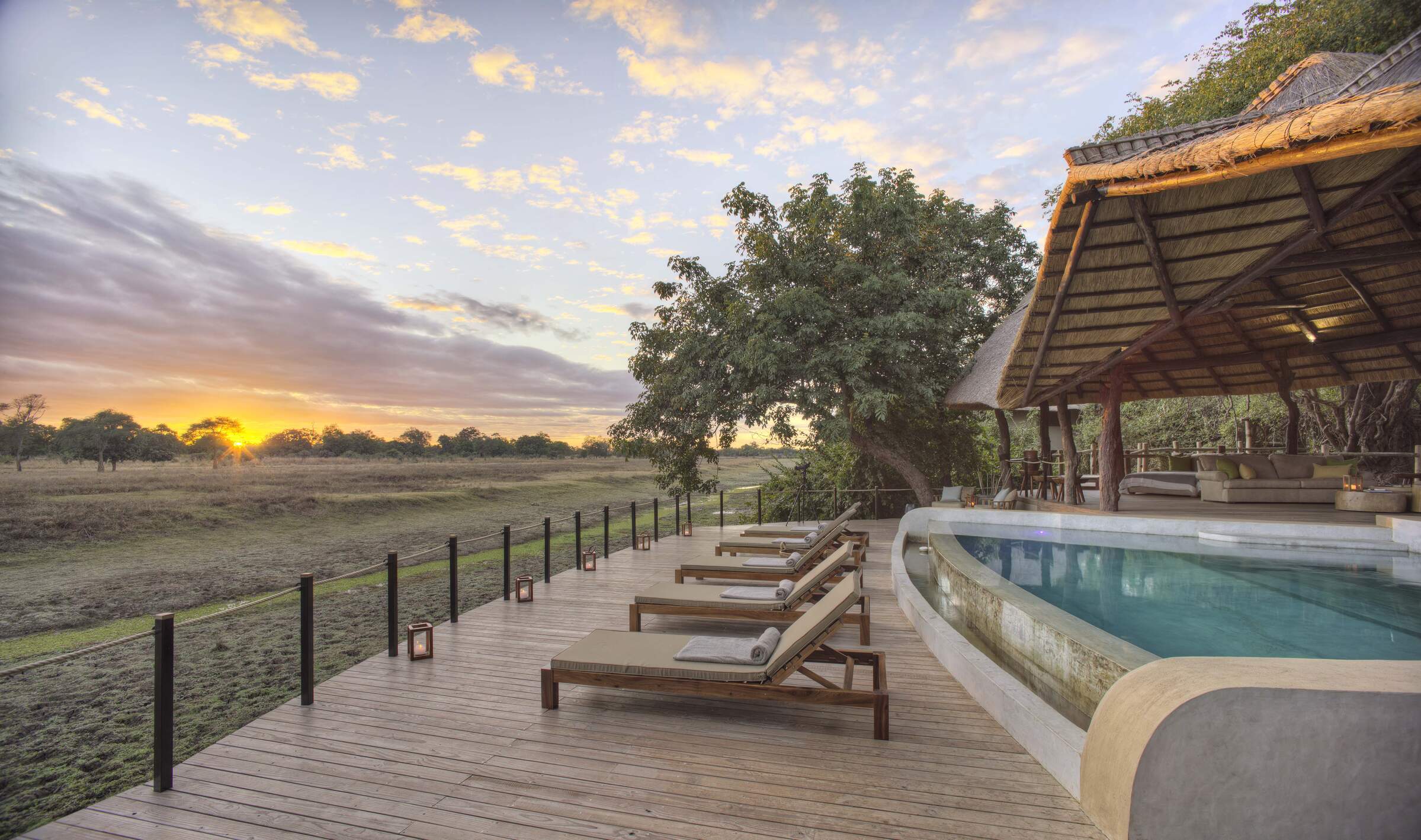
Lion Camp
Lion Camp is an established and comfortable camp with a swimming pool, located near to the game-rich Lion Plain in the northern part of South Luangwa National Park.
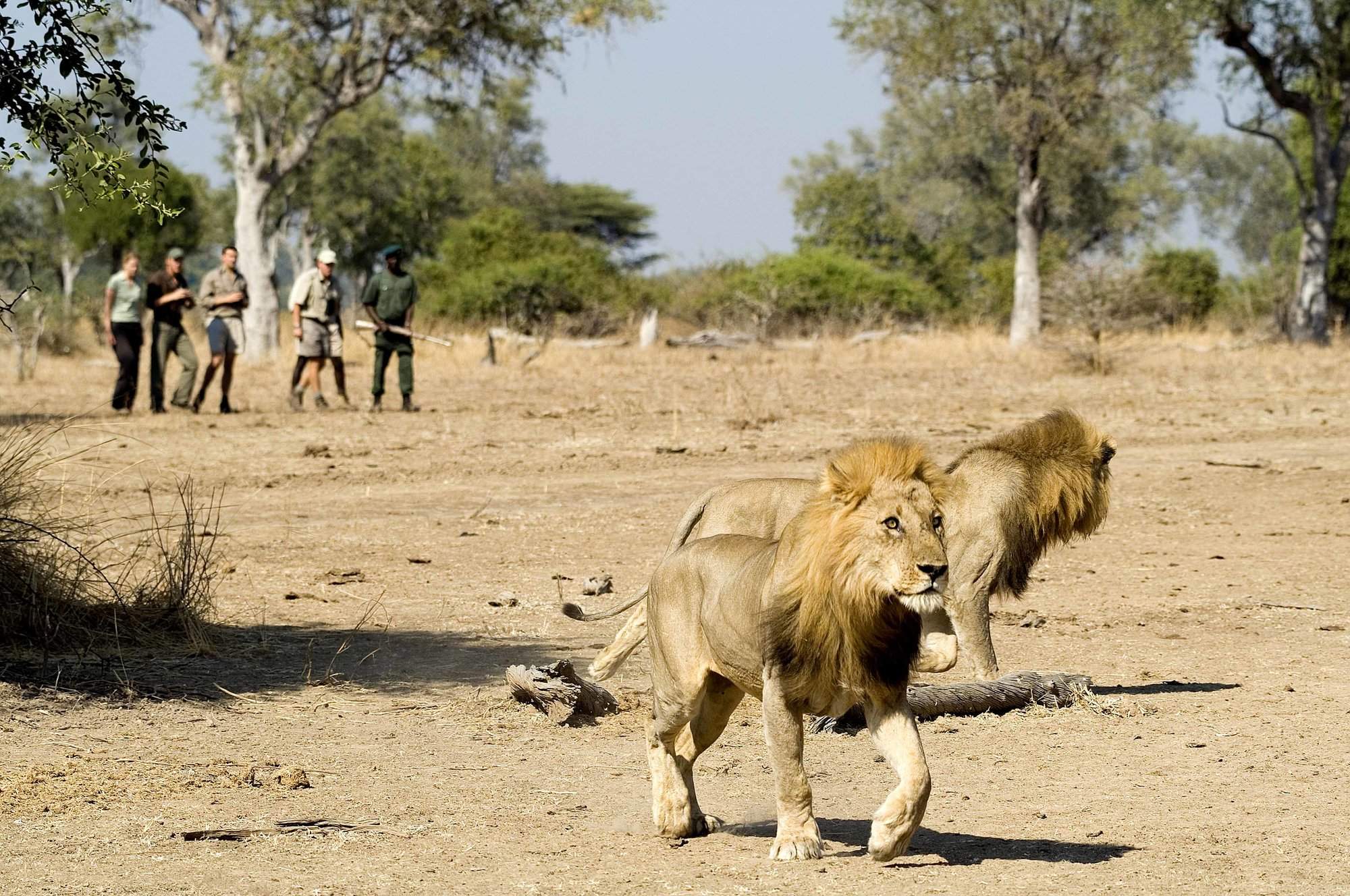
Robin Pope mobile
RPS mobile safari camps are at the heart of their set-itinerary walking safaris in South Luangwa National Park, which start and finish at a permanent camp.
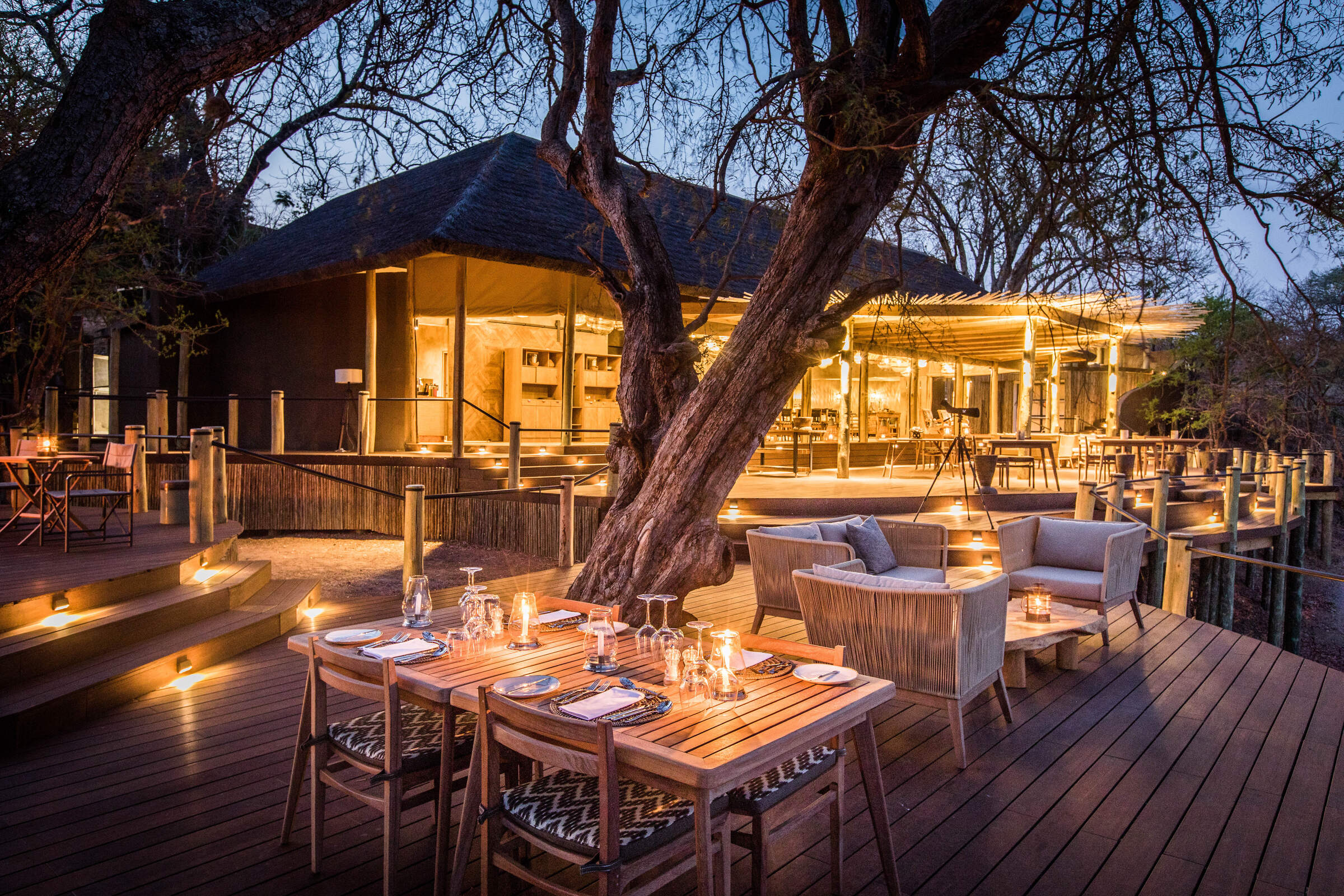
Puku Ridge
Puku Ridge is a luxurious designer camp set in a stunning location, high on a hill overlooking a floodplain within South Luangwa. Explore from here on 4WD safaris and walks.
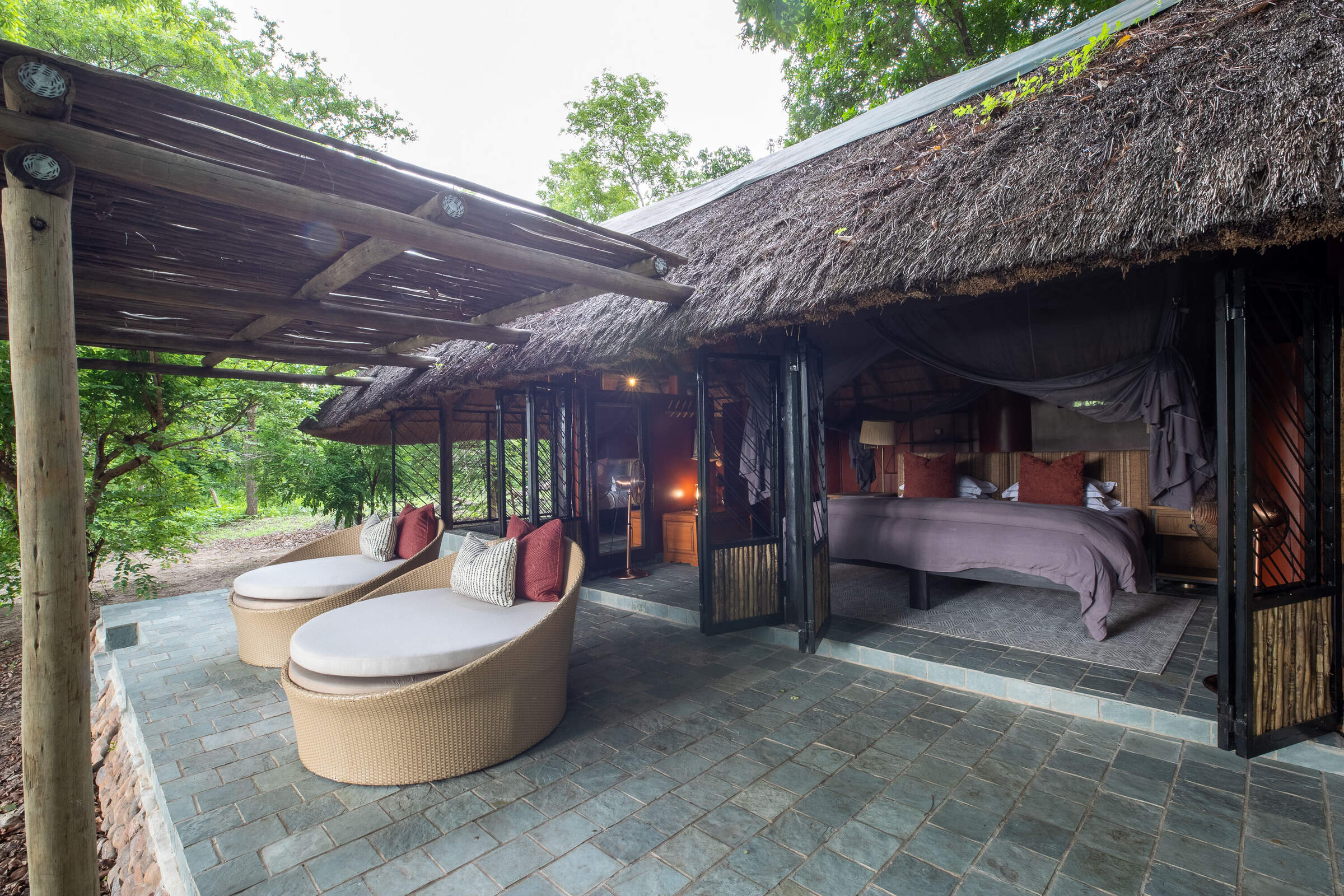
Kapamba Bushcamp
In the remote far south of South Luangwa National Park, Kapamba is a small and very comfortable bushcamp offering good walks and game drives.
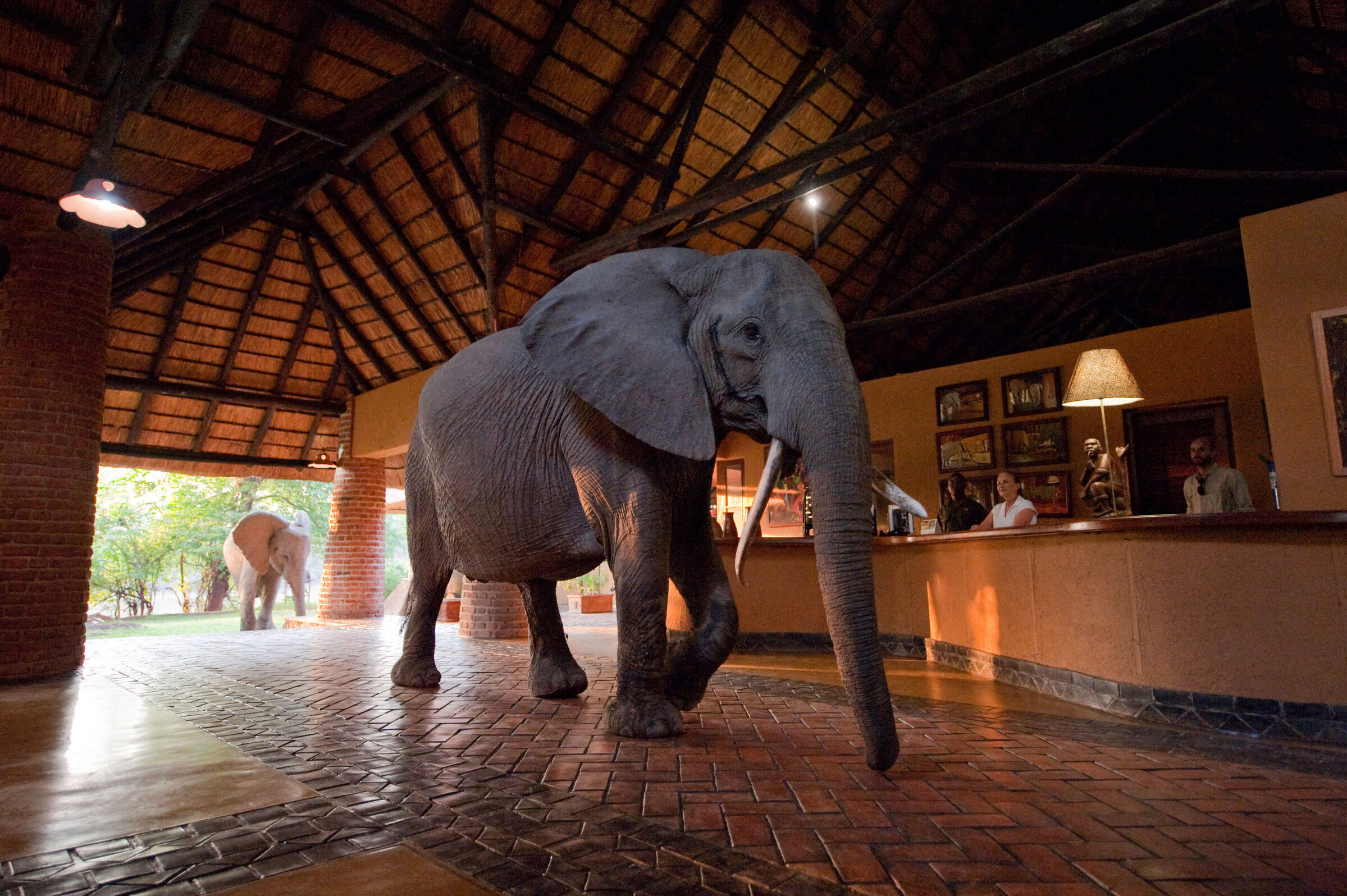
Mfuwe Lodge
In a game-rich area close to the South Luangwa’s main Mfuwe Gate, Mfuwe Lodge is relatively large by park standards, but it’s stylish, modern and family friendly.
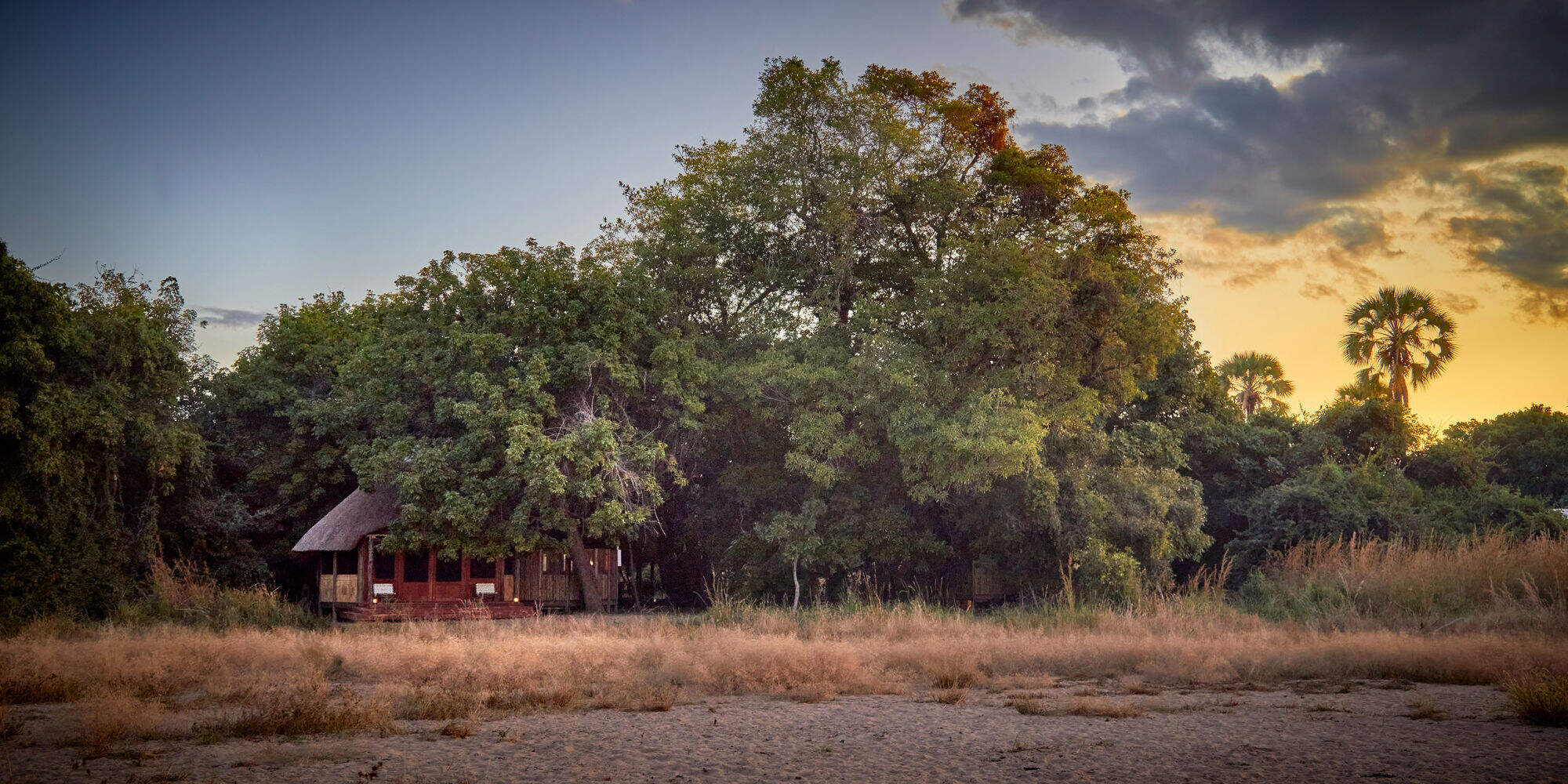
Kuyenda Bushcamp
Kuyenda Bushcamp is a classic bushcamp with particularly delightful hosts and offers top-class walking safaris in South Luangwa National Park.
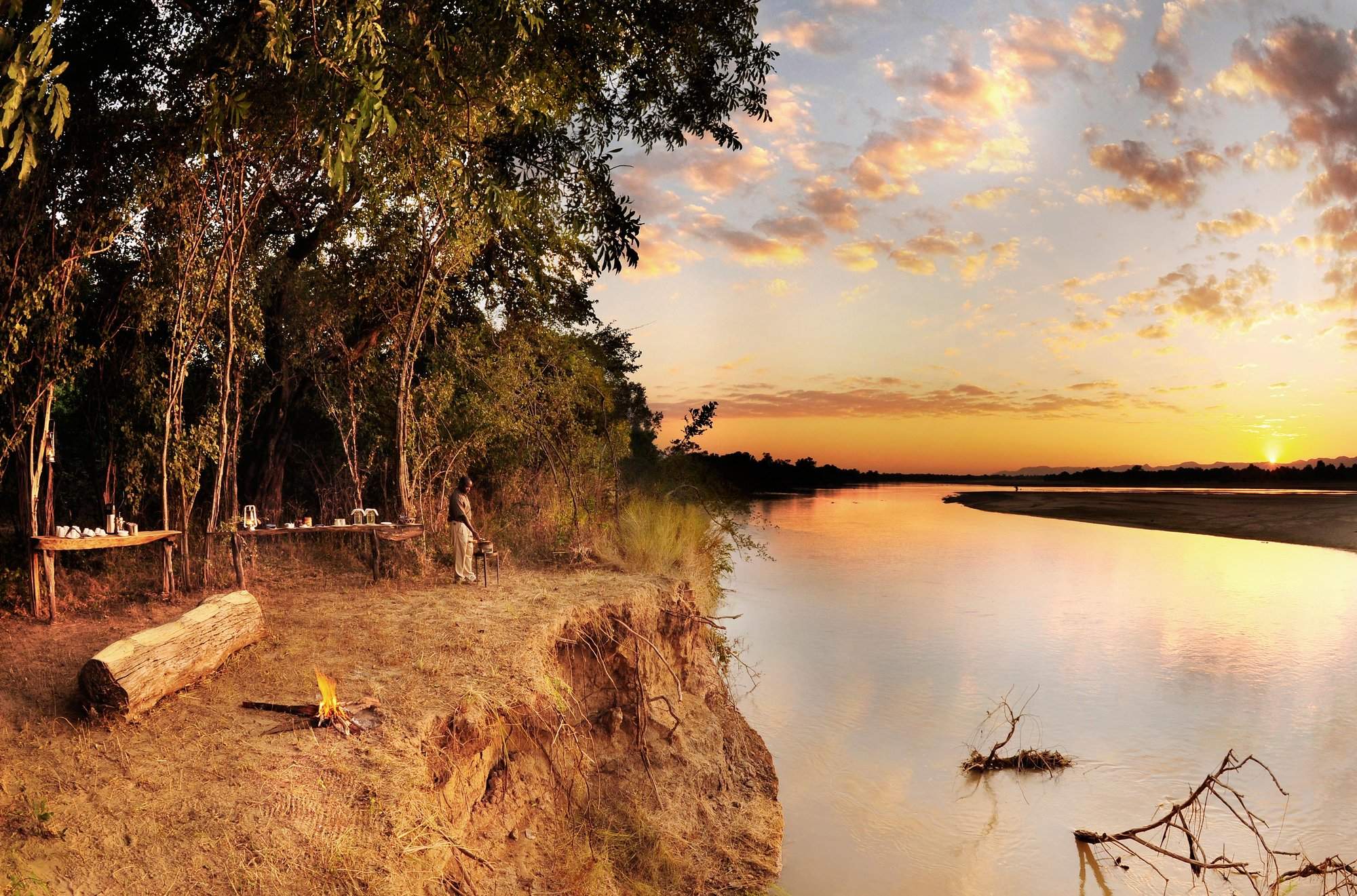
Bilimungwe Bushcamp
A smart bushcamp with four very spacious chalets, Bilimungwe offers interesting walking safaris in pretty riverine woodland, as well as day and night safari drives.
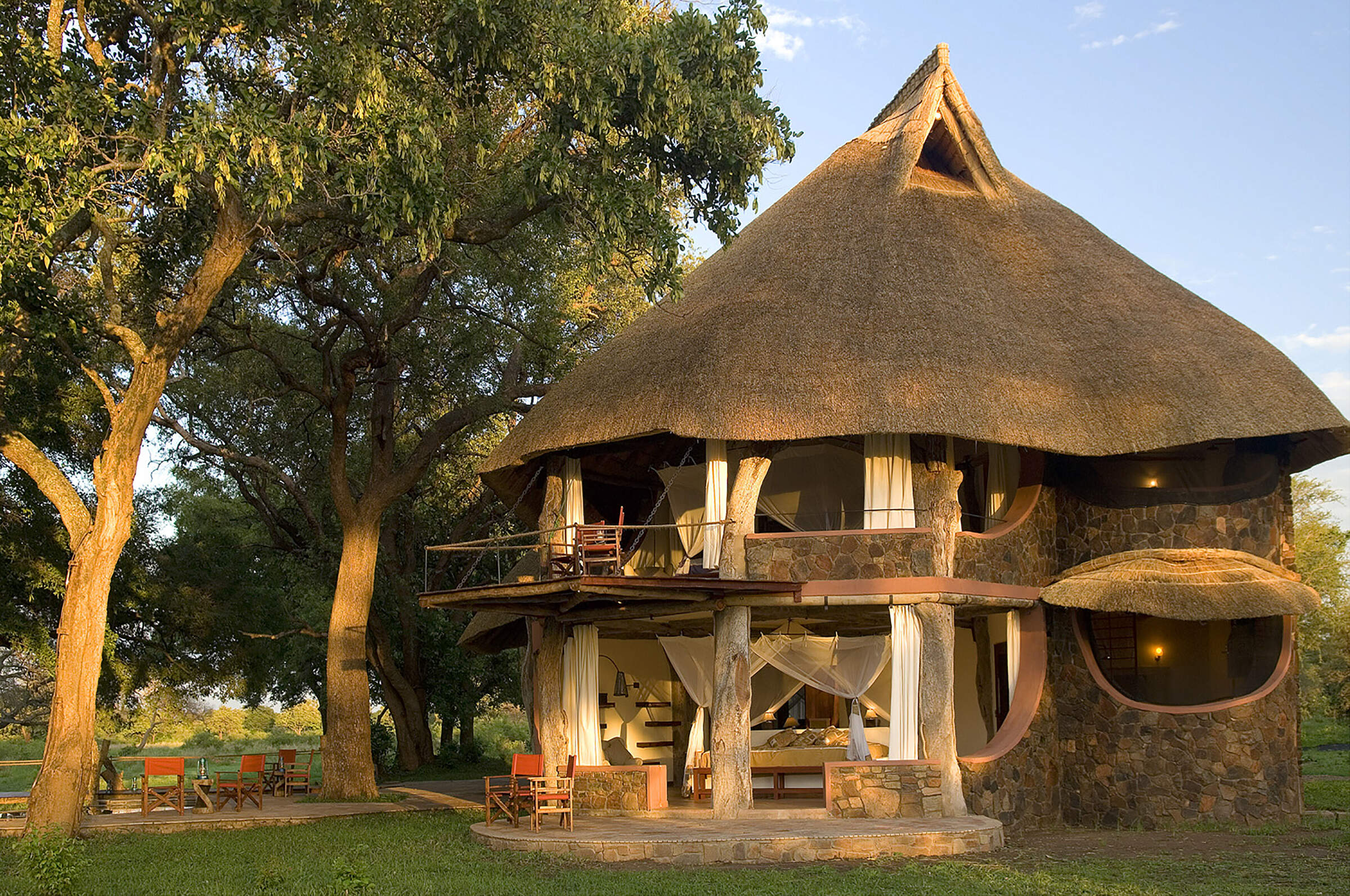
Luangwa Safari House
Luangwa Safari House is a vast and very smart four-bedroom house specifically designed for families and small groups, and offering an exclusive and flexible safari experience.
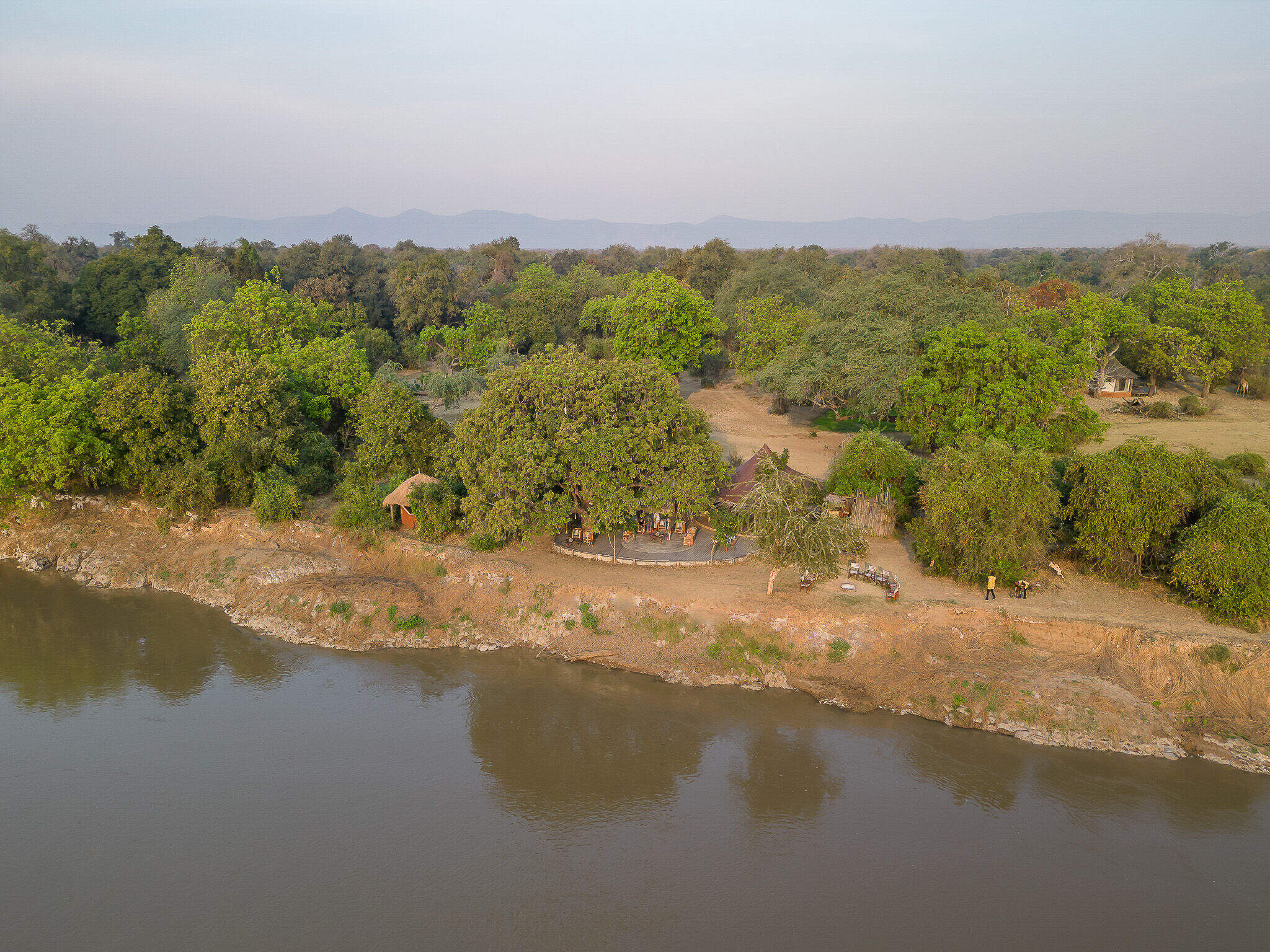
Three Rivers Camp
In the remote far south of South Luangwa National Park, Three Rivers Lodge sits at the confluence of three of the valleys rivers.
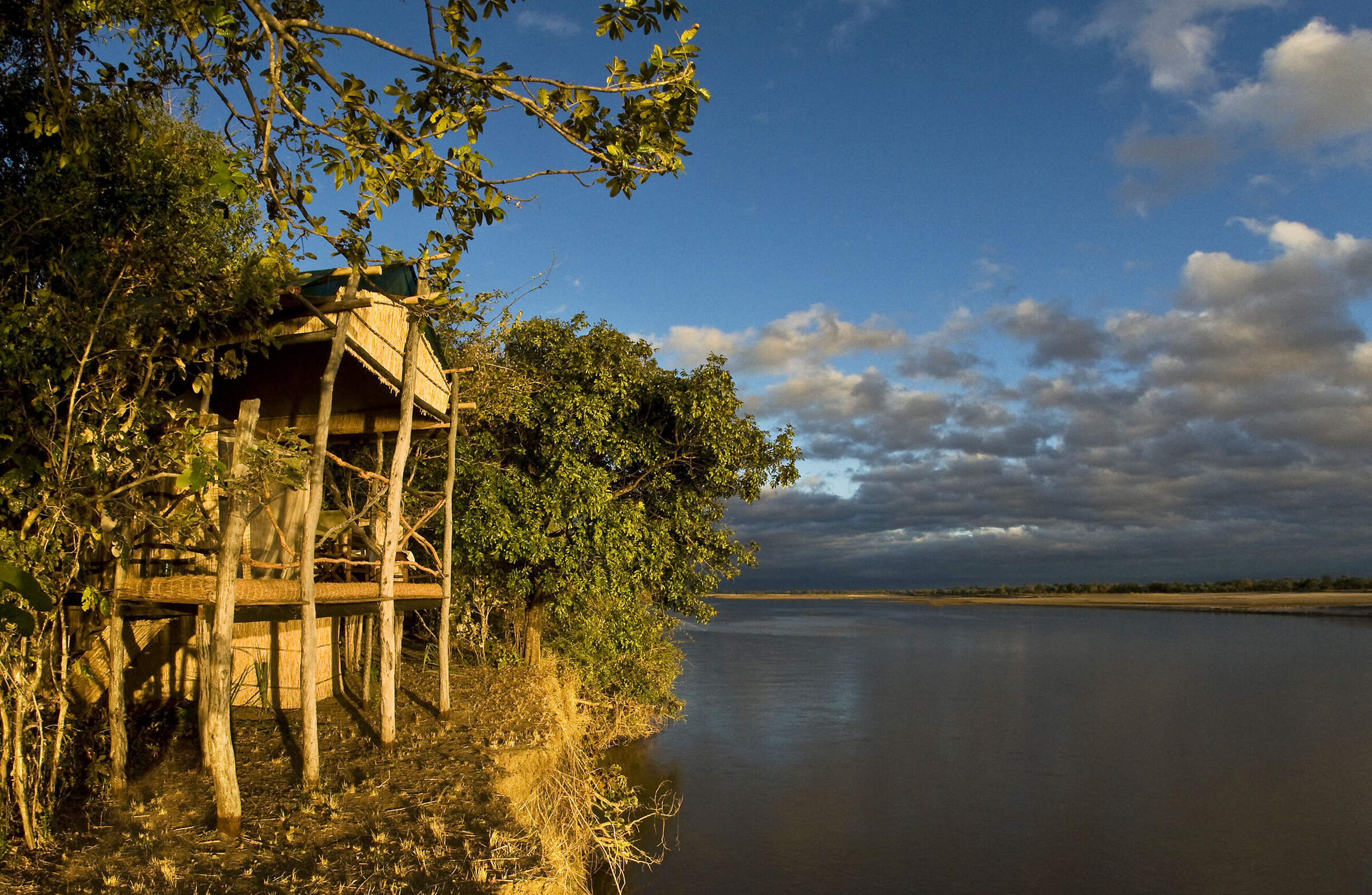
Island Bush Camp
Island Bushcamp is a good-value, rustic, walking-only camp, in arguably one of the most remote parts of the South Luangwa, well away from all other camps.
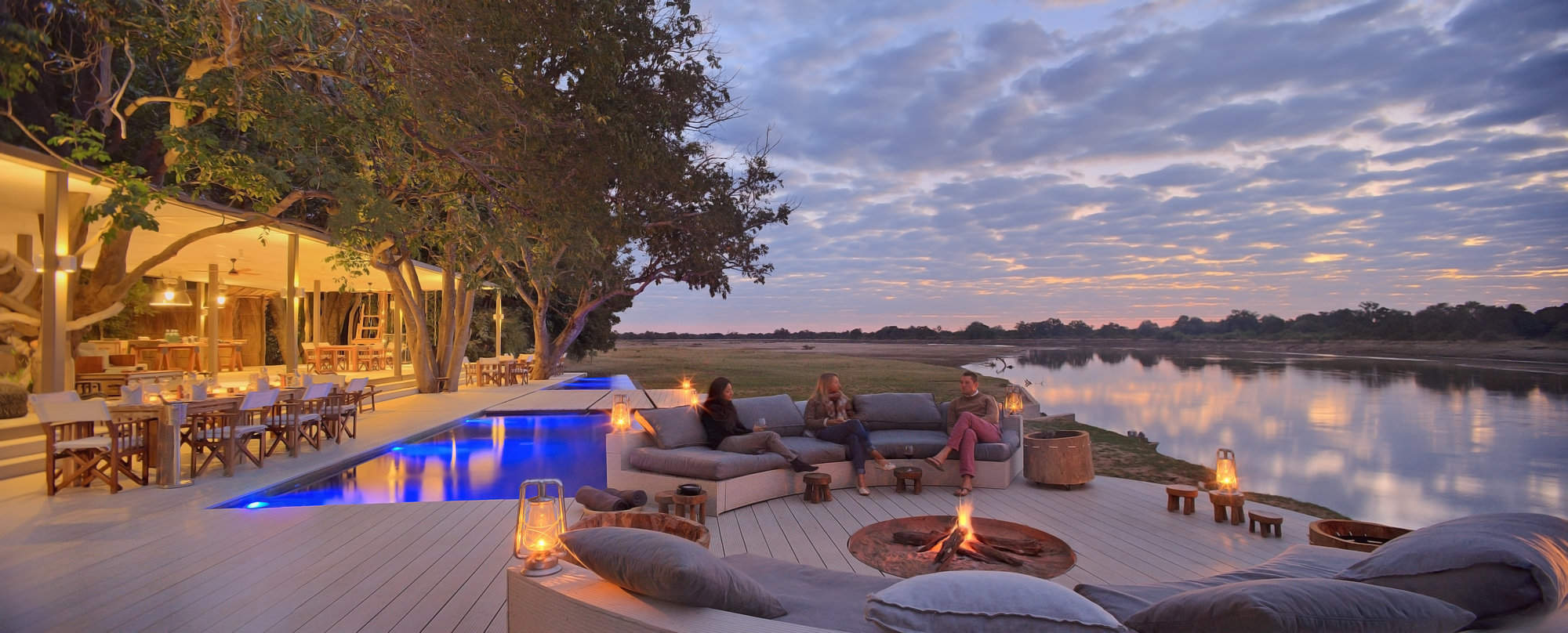
Chinzombo
Opened in early June 2013, Chinzombo offers luxurious and stylish accommodation with very high levels of service and excellent guiding.
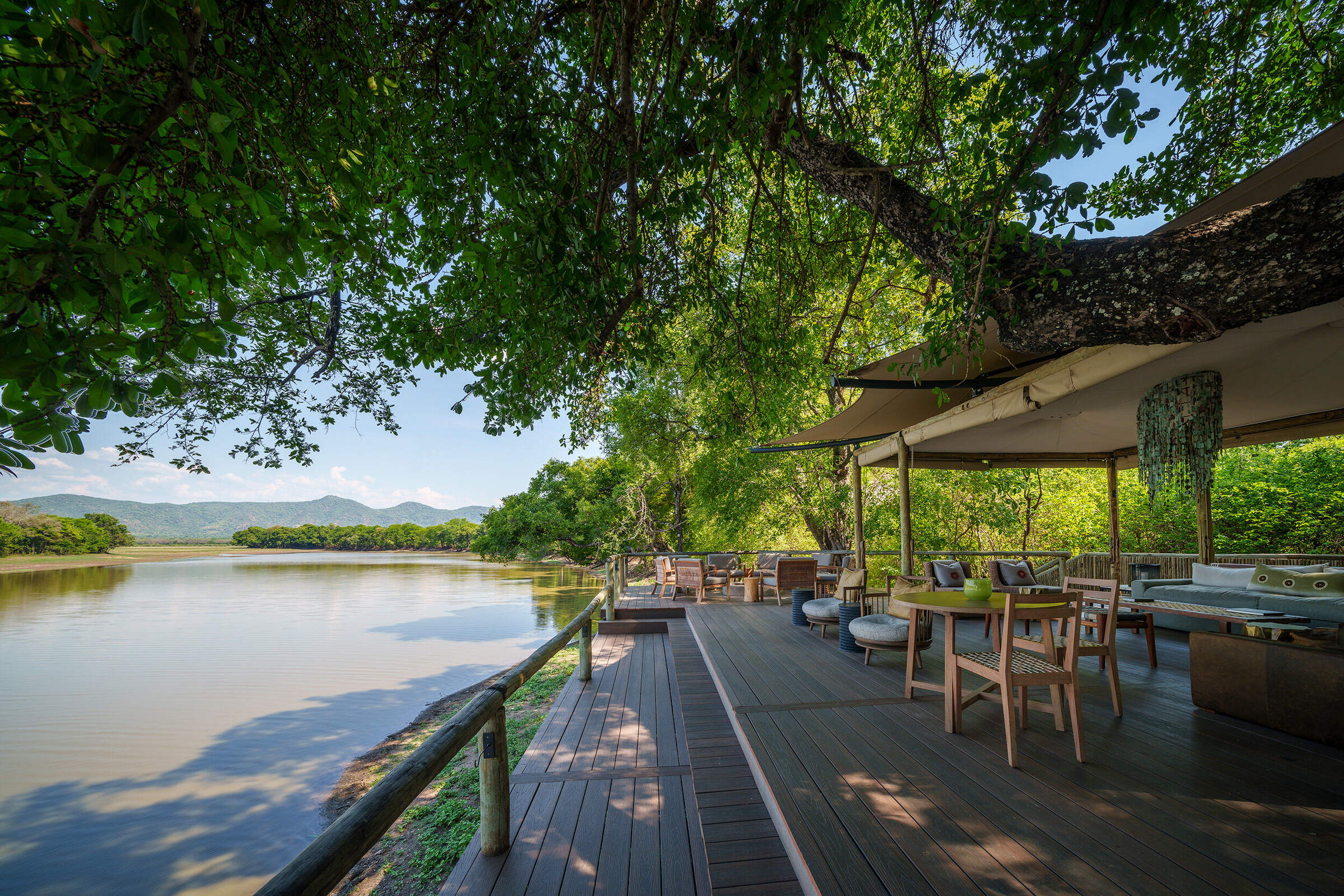
Chindeni
Chindeni Bushcamp is a very modern and minimalist camp, which is a far cry from your traditional bushcamp and unlike most of the other camps in South Luangwa.
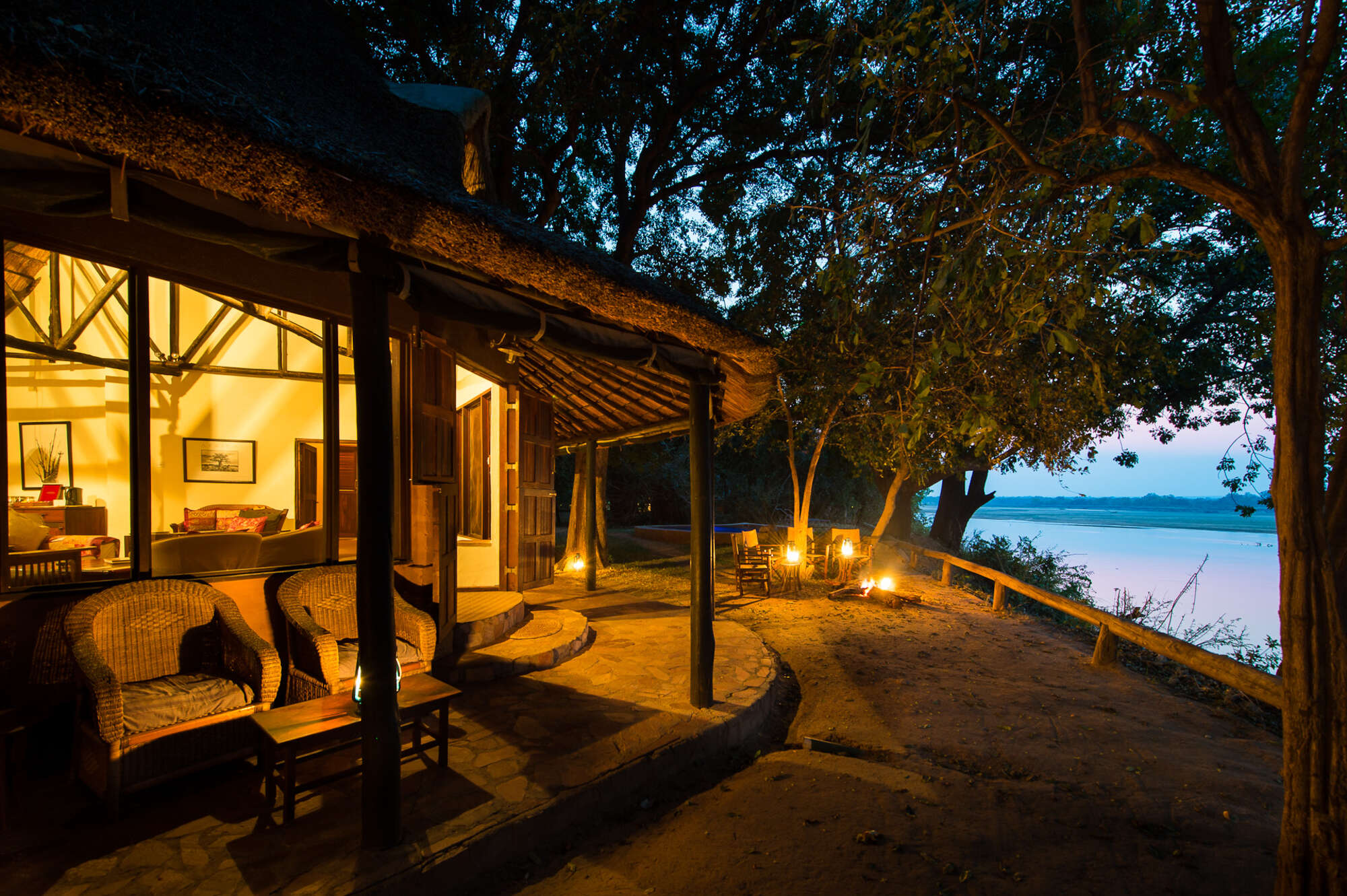
Robin's House
With your own expert guide, private vehicle, chef and valet, the two-bedroom Robin's House offers an exclusive, flexible safari experience – and is open year round.
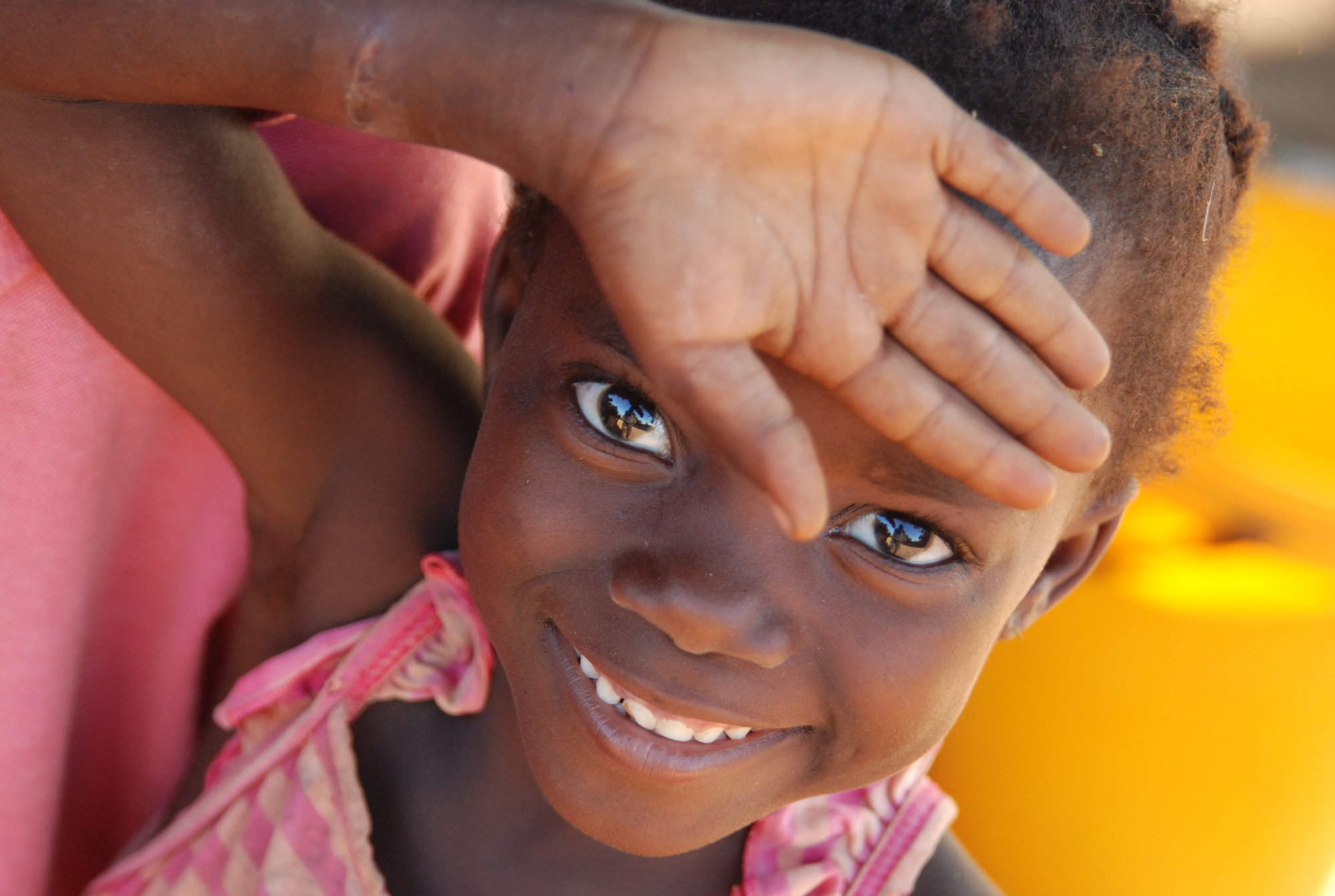
Kawaza Village
Kawaza Village – beside the South Luangwa National Park, offers guests the rare opportunity to appreciate local village life. Visit for a few hours or stay overnight.
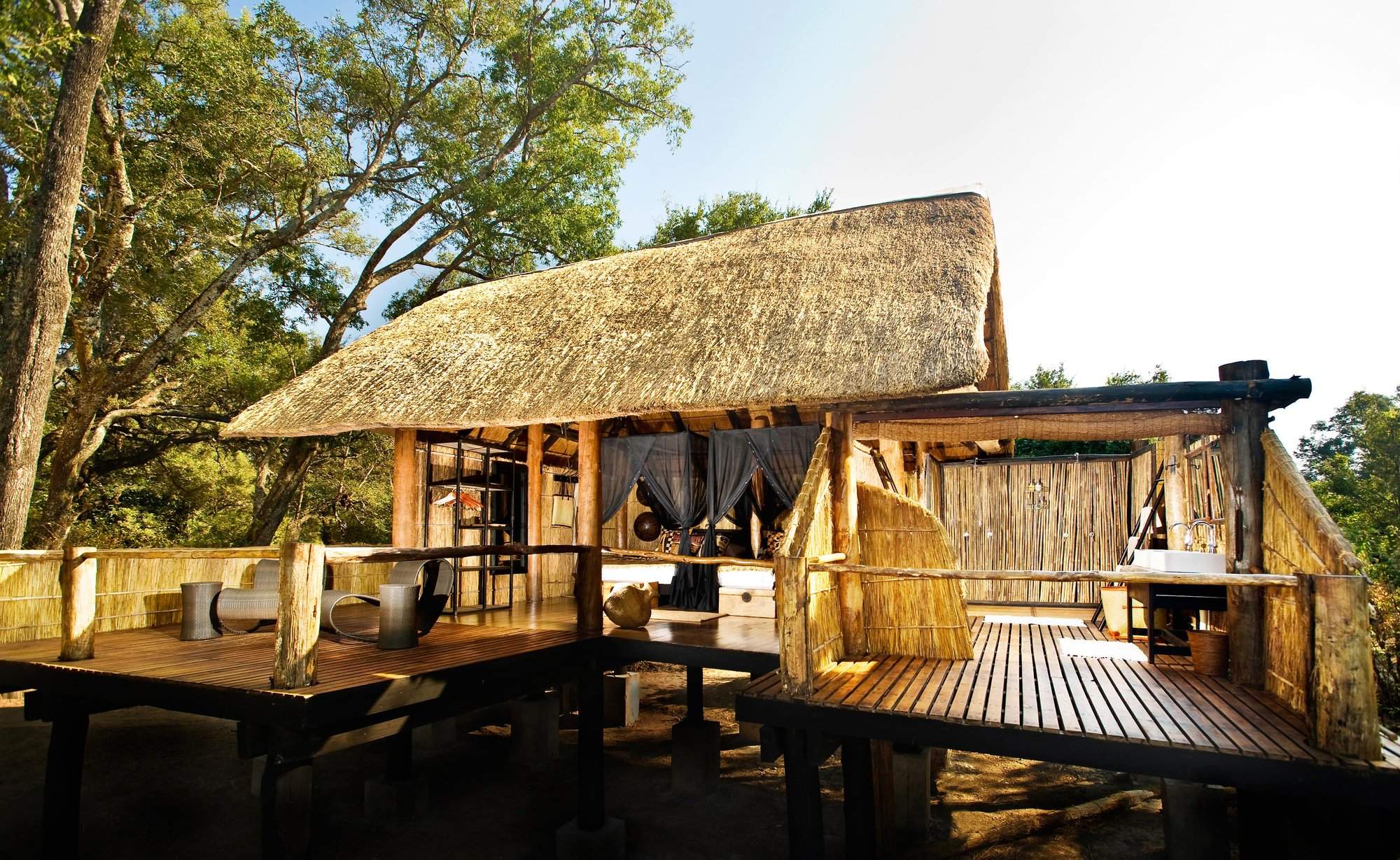
Chamilandu Bushcamp
A comfortable little bushcamp, Chamilandu has a picturesque setting by the Luangwa River, in an area with a range of habitats to explore on foot and by 4WD.
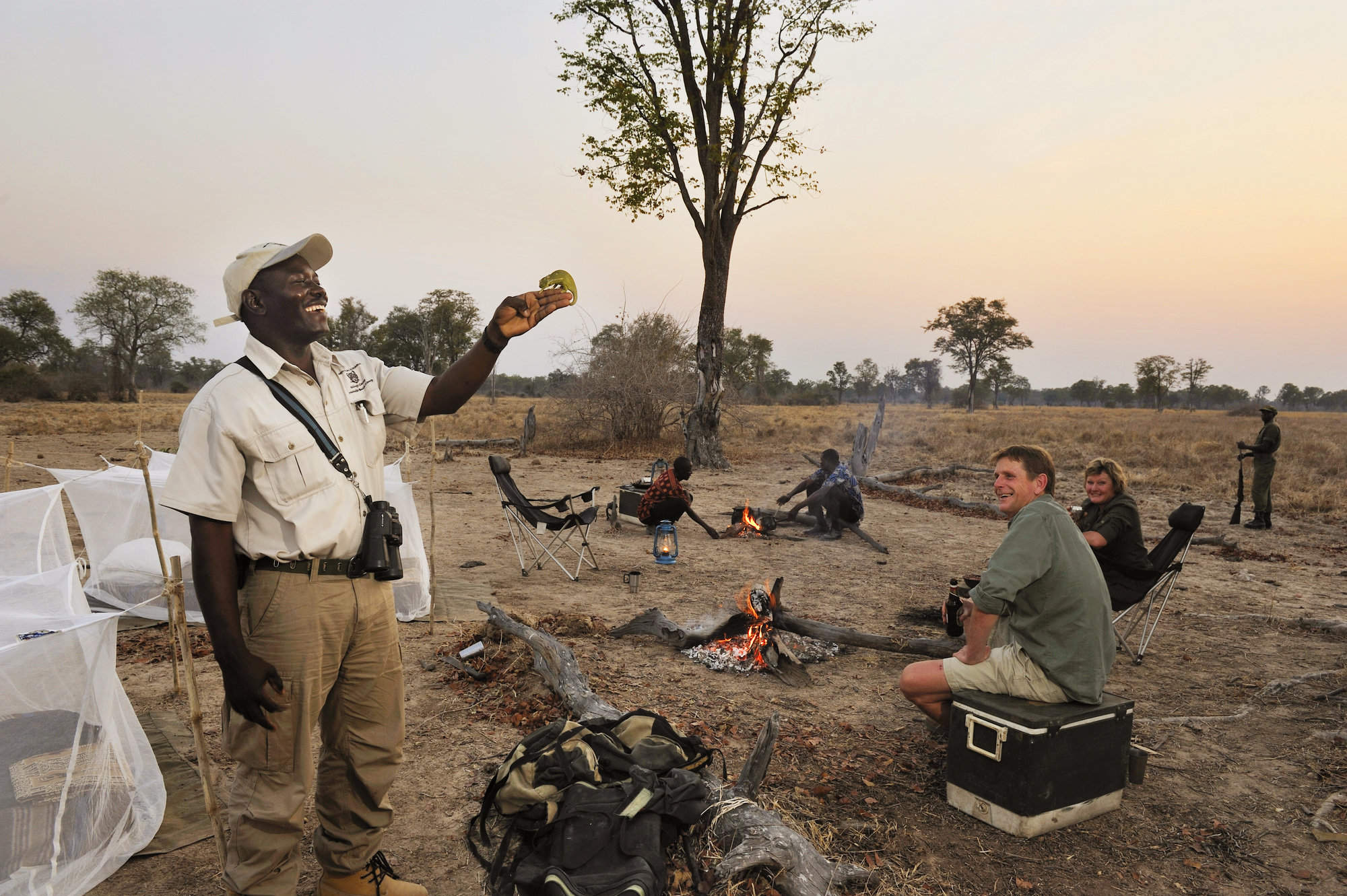
Mwamba Camp-out
The Mwamba-Camp Out allows you to have an incredibly adventurous night in the bush, sleeping under mosquito nets with activities led by some of the best guides in Zambia.
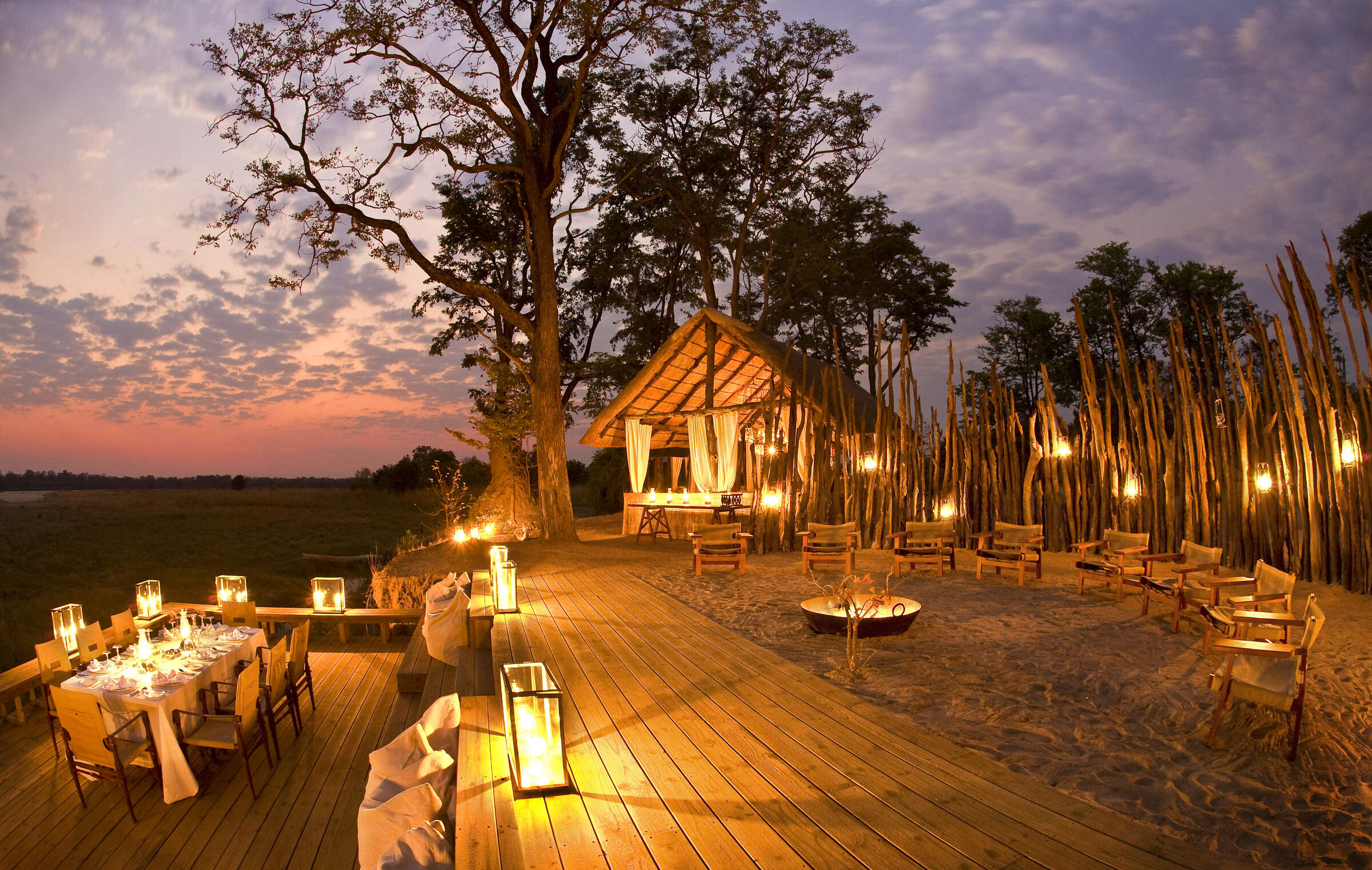
Zungulila
Zungulila is a small, comfortable tented bushcamp with an emphasis on walking safaris, in the remote southern section of the South Luangwa.
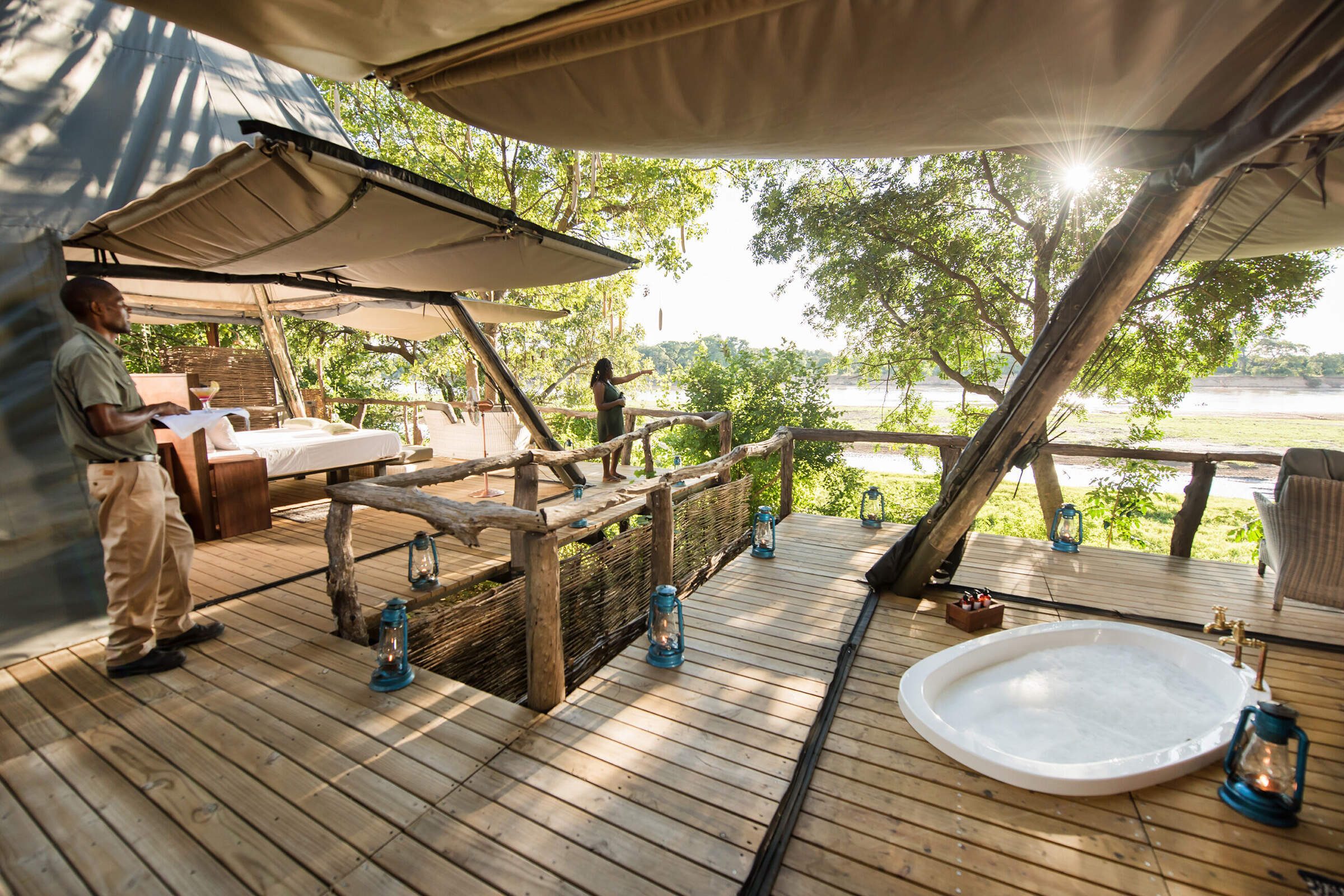
Shawa Luangwa
Opened in June 2021, Shawa Luangwa Camp is a small, intimate and rustic camp, with a good location in a remote section of the South Luangwa National Park.
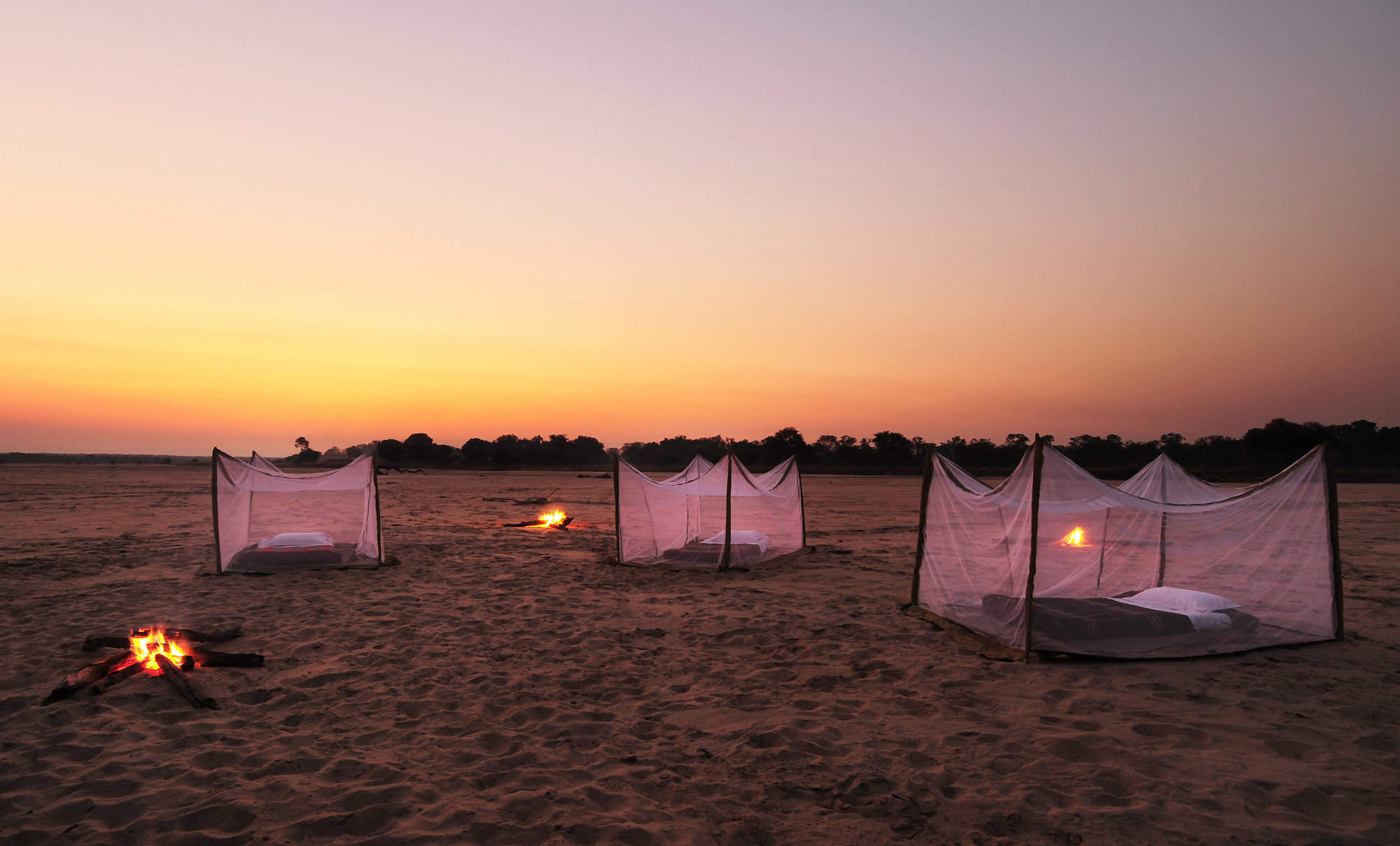
Luwi Riverbed Sleepout
For an adventurous night in South Luangwa National Park, come and sleep out in the bush, around a campfire, with an experienced guide and game scout.
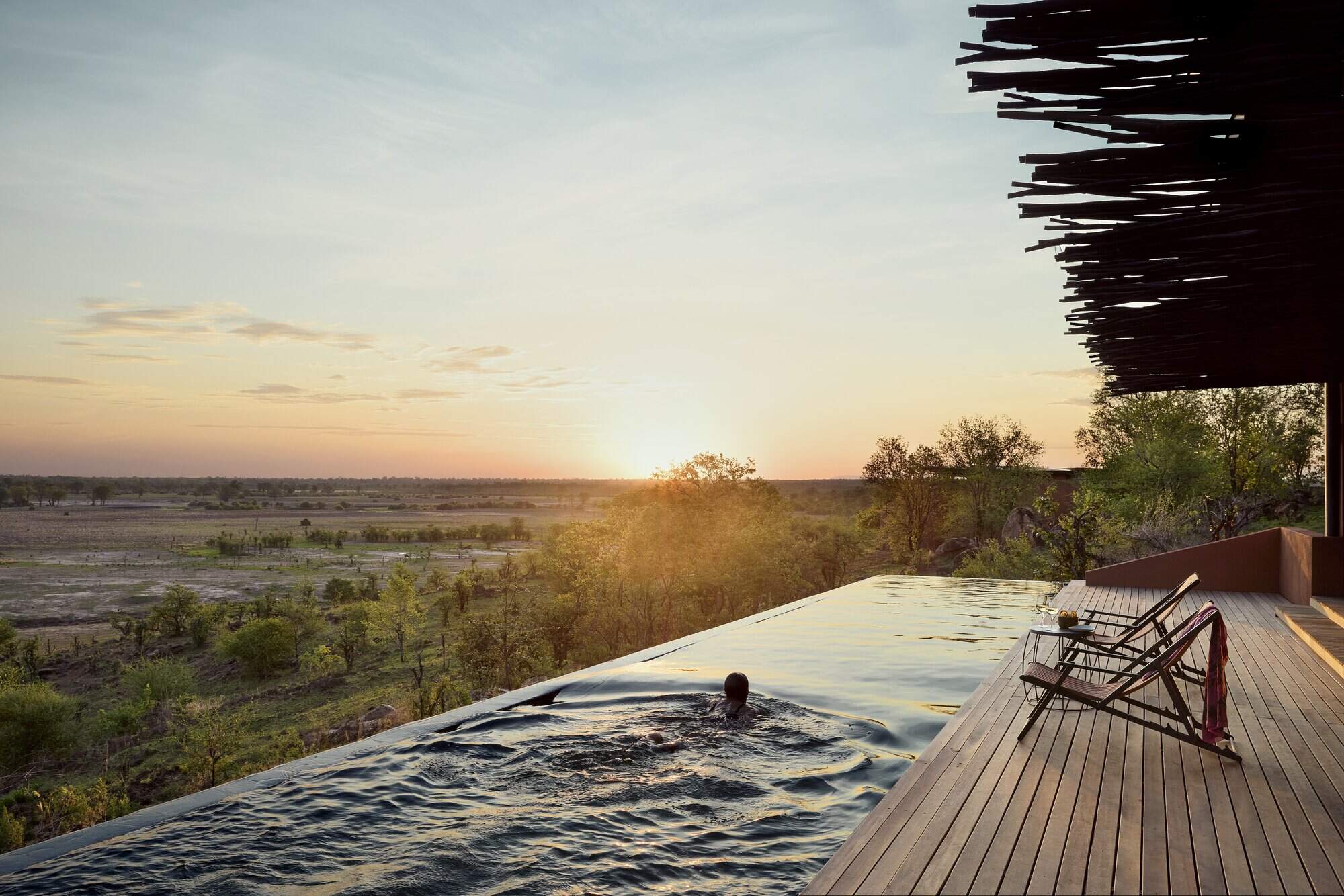
Chichele Lodge
Currently in the final stages of an extensive rebuild, Chichele Presidential Lodge stands high within the park, with superb views, and is due to reopen in early 2025.
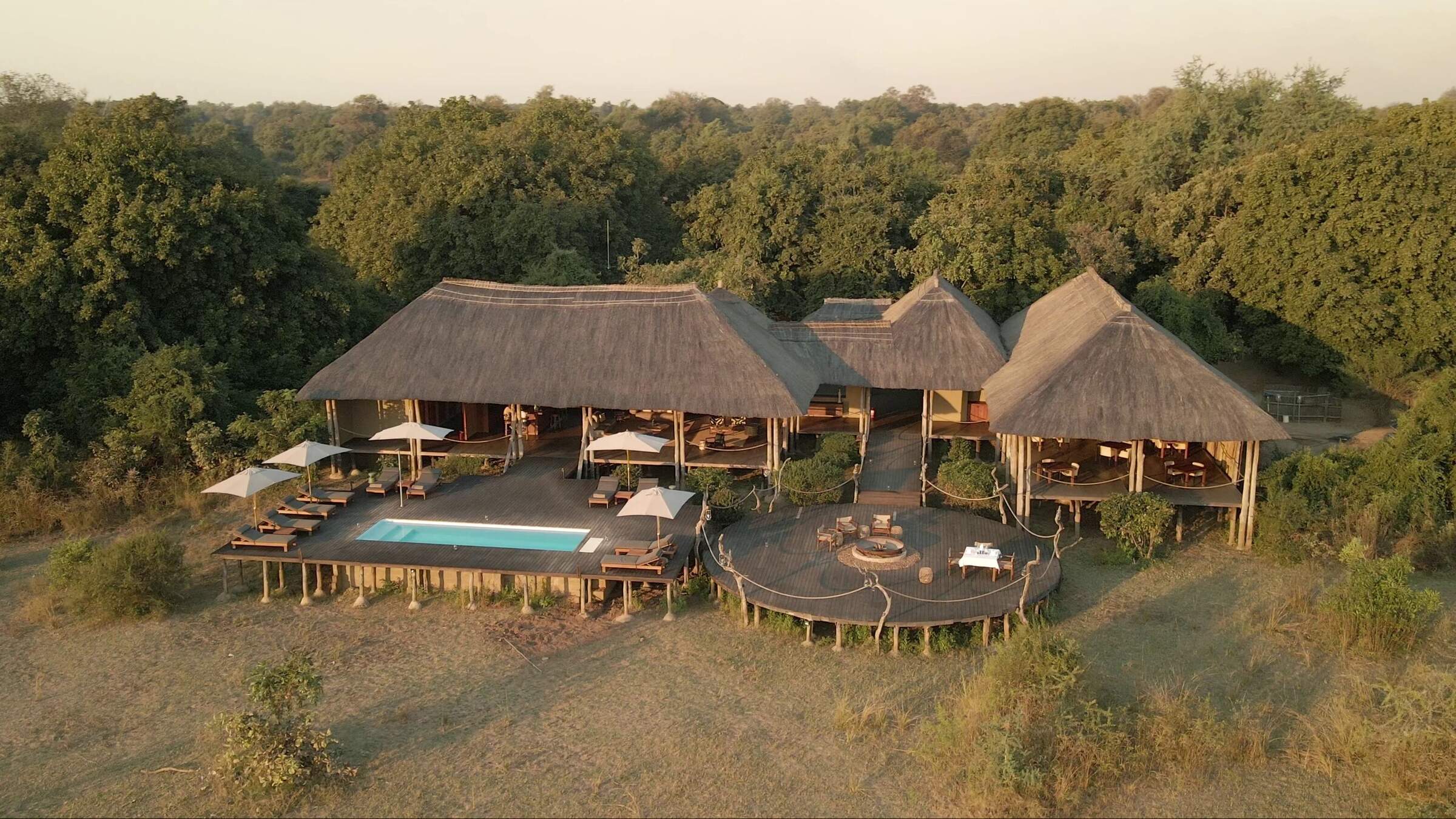
Chikunto
Chikunto Safari Lodge is a more traditional property in the South Luangwa National Park, sitting on a peninsula of land created by the meandering Luangwa River.
When to go to South Luangwa National Park
Our month by month guide: What it's like to visit Nkonzi Camp in South Luangwa National Park
Jan
Feb
Mar
Apr
May
Jun
Jul
Aug
Sep
Oct
Nov
Dec
South Luangwa National Park in January
January marks the height of the wet season in South Luangwa. Expect frequent downpours, often lasting a few hours, with intermittent sunny periods. The mercury regularly climbs above 30°C, accompanied by high humidity. The park's landscape is verdant and lush, with crystal-clear air.
However, the abundance of water causes most larger animals to disperse, and the thick vegetation can hinder game viewing. Walking safaris are largely impractical during this time. Migratory birds, many in breeding plumage, boost the area's avian diversity. Most lodges close and the few that remain open offer their lowest rates. Only the central network of all-weather roads is reliably passable for 4WD safaris. Low numbers of visitors ensuring a tranquil park experience for those who do visit.
- Wet season peak, frequent showers
- Most lodges and all bush-camps are closed
- Lush vegetation, ideal for photography
- Large wildlife is scattered, can be challenging to spot
- Few tourists, budget-friendly rates
Our view
This is not a great time to visit
Weather in January
South Luangwa National Park in February
February continues the ‘green season’ trend in South Luangwa National Park, with impressive thunderstorms delivering short bursts of rain most days, punctuated by clear skies. The park remains awash with water, affecting wildlife distribution and lodge operations.
Dense vegetation limits game viewing opportunities on safari and walking safaris aren’t usually possible. However, the swollen Luangwa River allows for unique boating experiences unavailable during drier months. Despite challenging conditions, patient visitors may be rewarded with sightings of animals caring for their young. The handful of operational lodges maintain low rates, and the park sees few visitors during this period.
- Continued wet season, regular downpours
- All bush-camps and most lodges are closed
- Verdant scenery, photogenic landscapes
- Game viewing challenging due to thick foliage
- Low visitor numbers, economical pricing
Our view
This is not a great time to visit
Weather in February
South Luangwa National Park in March
March signals the tail end of South Luangwa's rainy season, with heavy showers still frequent. Water levels peak, so driving off the park’s all-weather road network remains challenging. Daytime temperatures consistently exceed 30°C, with rain-induced humidity remaining high.
Most lodges are still closed, and thick vegetation continues to impact game viewing and walking safaris. However, this period can offer exceptional sightings of animals with their offspring, and predator activity often increases. Wild dogs have historically been particularly active in the park during this time. The combination of clear air and increasingly blue skies provides excellent photographic opportunities. Birdwatching remains superb as migratory species prepare for their winter journey.
- Wet season persists, intermittent rain
- Many lodges remain closed
- Abundant greenery, picturesque settings
- Young animals plentiful, but hard to see
- Minimal crowds, cost-effective travel
Our view
This is not a great time to visit
Weather in March
South Luangwa National Park in April
April represents a transitional period in South Luangwa National Park as the rains shift from intense downpours to lighter, less frequent showers. The park's scenery remains incredibly green and vibrant, though larger wildlife can be harder to spot on safaris.
Some lodges begin to reopen while seasonal bushcamps remain closed as they prepare for the upcoming dry season. The Luangwa River reaches often its highest level in April, creating a spectacular sight. Despite the challenges, this period can offer unique experiences for those willing to brave the unpredictable conditions – and accept a greatly reduced choice of places to stay.
- Wet season waning, occasional showers
- Some lodges begin reopening
- Landscape still lush, great for photographers
- Wildlife viewing slowly improving
- Few visitors, attractive off-season rates
Our view
This is not a great time to visit
Weather in April
South Luangwa National Park in May
May is a lovely month; it typically heralds the start of the dry season in South Luangwa. While occasional showers may occur, most days are clear and sunny. As winter approaches, temperatures begin to drop, with daytime highs around 26°C.
The drying landscape improves access within the park, and most lodges reopen. Some standing water remains, but game viewing noticeably improves as the vegetation thins out. The clear air continues to benefit photographers. Late May is very popular among the Luangwa’s ‘safari regulars’ who seek to capitalise on good weather, improved wildlife sightings, newly-opened camps (including some seasonal bush-camps) and the final weeks of low-season rates at many lodges.
- Dry season onset, clearer skies
- Most lodges and some bush-camps operational
- Vegetation still green, crisp air
- Game viewing conditions improving
- Last month for lower accommodation prices
Our view
A good time to visit, with pros & cons
Weather in May
South Luangwa National Park in June
June in South Luangwa National Park is characterised by virtually rainless days and abundant sunshine. Humidity levels plummet, and winter's approach brings cooler temperatures, with nighttime lows around 10°C and daytime highs of 25°C.
The landscape remains lush, but the thinning vegetation significantly enhances visibility for game viewing, the conditions are ideal for walking safaris. All the lodges and bushcamps in the park are operational by early June. While some offer shoulder season rates, others are already running with high-season pricing. Wildlife begins to concentrate around water sources, setting the stage for excellent game viewing in the coming months.
- Consistently sunny, cooler nights
- All South Luangwa lodges open
- Wildlife sightings becoming more frequent
- Ideal conditions for walking safaris
- Viewing of the Victoria Falls at its best
Our view
A very good time to visit
Weather in June
South Luangwa National Park in July
As the dry season progresses in South Luangwa, July sees vegetation and grasses dying back, with water becoming increasingly scarce. Wildlife congregates around remaining water sources, most notably along the Luangwa River, leading to excellent game viewing opportunities.
July marks the heart of winter, with daytime temperatures in the 20s Celsius, whilst nighttime lows can drop to single digits. Early morning and late evening game drives can be particularly chilly, with lodges often providing blankets and hot water bottles. Bring your hats, coats and gloves! Visitor numbers rise significantly, and space at popular small camps can become limited. Nearly all properties now charge their highest rates.
- Warm days, chilly evenings
- Game viewing notably improved
- Excellent visibility for walking safaris
- High season prices for most camps and lodges
- Comfortable daytime temperatures
Our view
A very good time to visit
Weather in July
South Luangwa National Park in August
August in the national park offers some of the year's best game viewing opportunities. South Luangwa’s vegetation has largely died back, and wildlife clusters around remaining water sources.
Rain is extremely unlikely, with sunny days largely guaranteed, though a haze may sometimes appear on the horizon due to dust and smoke in the air. Nighttime temperatures can dip below 5°C, but daytime highs reach the 20s Celsius. Warm clothing is essential for morning and evening drives. This is one of the most popular months to visit the park for a safari, with lodges and camps charging peak rates and often booking up far in advance.
- Very dry warm days and cold nights
- Prime wildlife viewing near water sources
- Perfect weather for walking safaris
- Peak season means highest prices
- Some haze may affect photography
Our view
Fantastic: the very best time to visit
Weather in August
South Luangwa National Park in September
September is arguably the very best time to visit South Luangwa National Park. It probably hasn’t rained for many months, humidity is low, and temperatures are just beginning to climb.
Mornings are more comfortable for 4WD safaris, rising to daytime typical highs in the low 30s Celsius. Water scarcity forces the wildlife to congregate around remaining sources, particularly around the Luangwa River, where most of the camps and lodges are situated. There high game densities lead to increased chances of inter-species interactions. It’s peak season for lodges and camps charge which are often fully booked. A little haze may affect long-distance views and photography. The Luangwa River's water levels continue to drop, concentrating hippos and crocodiles life in the remaining stretches.
- Dry and hot, clear skies
- Exceptional month for wildlife observation
- Landscape sometimes hazy due to dust and smoke
- Peak season, lodges often fully booked
- Higher prices for accommodation
Our view
Fantastic: the very best time to visit
Weather in September
South Luangwa National Park in October
October sees the dry season peak in South Luangwa at its most intense, with the landscape increasing parched. Occasional showers may occur as the promise of rain approaches. Temperatures can soar above 40°C during the day, rarely dropping below 20°C at night.
This heat can be draining, so walking safaris will set off early in the morning to beat the heat and sitting in an open 4WD on safaris can feel like facing a large hair-drier. Heat-haze and smoke may obscure the horizon as the Luangwa River becomes a series of pools, crowded with hippos and crocodiles. Other wildlife cautiously approaches these water sources, leading to thrilling predator-prey interactions. Game viewing is at its absolute best with the best chance of witnessing hunts.
- Optimal wildlife viewing conditions
- Very hot days and nights
- Dusty, hazy atmosphere is challenging for photos
- Some lodges start lowering their rates
- Less crowded than previous months
Our view
A very good time to visit
Weather in October
South Luangwa National Park in November
November typically witnesses the end of the dry season in South Luangwa. While the onset of rains is unpredictable, temperatures remain consistently high and humidity builds as the wet season approaches.
Early November may still be dry, but spectacular thunderstorms usually arrive, often later in the month, triggering rapid green growth when they do come – and an explosion of life from insects and smaller animals. Everything seems to come to life! When pools of water becomes more readily available away from the Luangwa River the wildlife quickly disperses. Some camps and all the seasonal bush-camps camps close; those that remain open reduce their rates. The rains quickly clear the air of dust and smoke, improving visibility and photographic conditions.
- Unpredictable month: depends on the rains
- Hot and humid – then the set season begins
- Wildlife dispersing as vegetation thickens
- Lower accommodation rates, fewer tourists
- Improved conditions for landscape photography
Our view
A good time to visit, with pros & cons
Weather in November
South Luangwa National Park in December
December usually marks the first full month of South Luangwa's wet season. Heavy thunderstorms become frequent, interspersed with sunny intervals. Daytime temperatures often exceed 30°C, accompanied by high humidity.
The rainfall transforms the landscape, encouraging lush vegetation growth. It’s a time renewal when insects, birds and smaller wildlife abound. While the larger species of wildlife remains in the park, wildlife viewing becomes more challenging due to the thick greenery and dispersed animal populations. Many lodges and all seasonal bush-camps are now closed as access to the park’s outlying areas becomes difficult. The few lodges that remain open offer lower rates and see few visitors. The rains clear the air, restoring vibrant blue skies and crystal-clear air which delights photographers.
- Rainy season in full swing
- Most lodges closed or offering low rates
- Wildlife harder to spot in thick vegetation
- Few visitors, budget-friendly period
- Lush green scenery, very photogenic landscapes
Our view
This is not a great time to visit
Weather in December

Looking for inspiration on where to travel next?
Visit our trip chooser to explore your options and find inspiration for your perfect African adventure
Inspire me